Britain’s chief negotiator has accused Brussels of taking an “ideological approach” to floundering Brexit trade talks, which he says are making “very little progress”.
Speaking after the latest round of negotiations David Frost said the UK would make public its draft proposals for a trade deal next week, following a warning by EU’s chief negotiator Michel Barnier that “the United Kingdom has not got into a real discussion” on key issues.
The lack of movement comes with just a month to go until the deadline for extending the transition period under which the UK stays tied to EU rules – with the possibility of a damaging no-deal after that in December.
Download the new Independent Premium app
Sharing the full story, not just the headlines
But Mr Barnier in turn accused the UK of not understanding the situation it had put itself in by deciding to leave and being stuck in the 1970s, with a “stalemate” looming.
“I have to tell you, today there seems to be a real lack of understanding of the objective, mechanical consequences of the British choice to leave the single market and customs union,” he told reporters after the conclusion of the round.
“To make progress in these negotiations, if it is the UK’s intention to get an agreement with the European Union, then the UK will have to be more realistic. They will have to move beyond this lack of understanding. It will doubtless have to change its strategy.”
Mr Barnier added: “Trade policy is no longer what it was, trade policy has moved on. We’re no longer in the 70s – a time where trade agreements were solely to dismantle tariff barriers. We’ve moved on from that period”.
He said agreements now had to “be based on conditions of fair competition, in particular when it comes to state aid, social standards, of taxation”.
The biggest stumbling block between the two sides is the extent to which the UK will respect EU rules and standards, or have reduced access to trade in the single market – a question the EU refers to as “level playingfield”.
Other issues include access for EU fishing fleets to British waters – a major European red line – and the governance and structure of the deal, including the role of the European Court of Justice.
The latest news on Brexit, politics and beyond direct to your inbox
The UK and EU are also at odds on whether the UK will commit to staying tied to the European Convention on Human Rights, with the UK notably refusing to make a formal commitment in treaty form despite insisting it has no plans to leave.
Mr Frost, Boris Johnson’s Brexit chief said in a statement after the end of the latest round of talks this week: “It is very clear that a standard comprehensive free trade agreement, with other key agreements on issues like law enforcement, civil nuclear, and aviation alongside, all in line with the political declaration, could be agreed without major difficulties in the time available. Both sides have tabled full legal texts, there are plenty of precedents, and there is clearly a good understanding between negotiators.
“The major obstacle to this is the EU’s insistence on including a set of novel and unbalanced proposals on the so-called ‘level playing field’ which would bind this country to EU law or standards, or determine our domestic legal regimes, in a way that is unprecedented in free trade agreements and not envisaged in the political declaration. As soon as the EU recognises that we will not conclude an agreement on that basis, we will be able to make progress.”
He added: “It is hard to understand why the EU insists on an ideological approach which makes it more difficult to reach a mutually beneficial agreement. We very much need a change in EU approach for the next Round beginning on 1 June. In order to facilitate those discussions, we intend to make public all the UK draft legal texts during next week so that the EU’s member states and interested observers can see our approach in detail.”
Both sides are due to meet again at the beginning of June. Talks are taking place over videoconference due to the coronavirus pandemic, with hundreds of officials on each side.
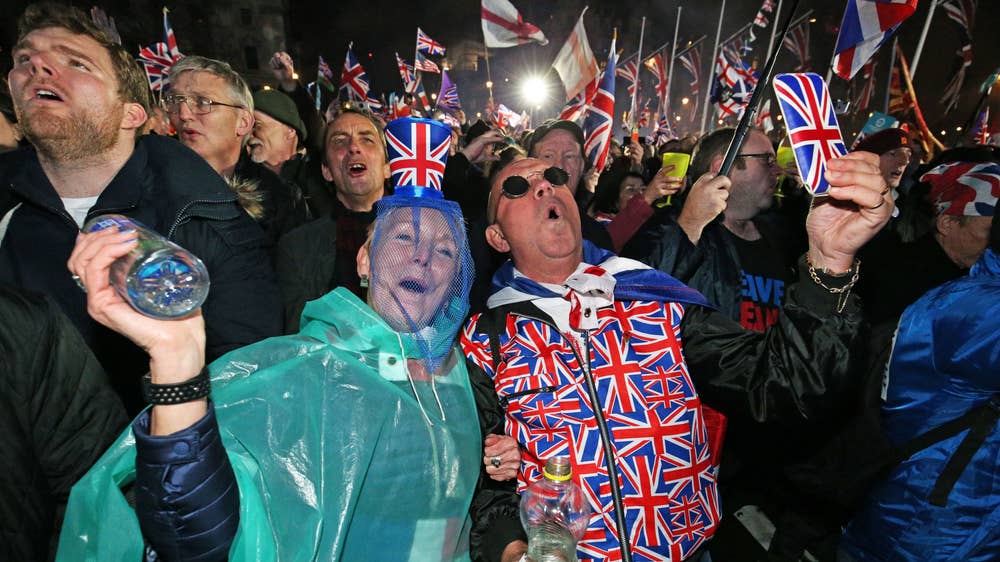

1/37
Pro-Brexit supporters celebrating in Parliament Square, after the UK left the European Union on 31 January. Ending 47 years of membership
PA
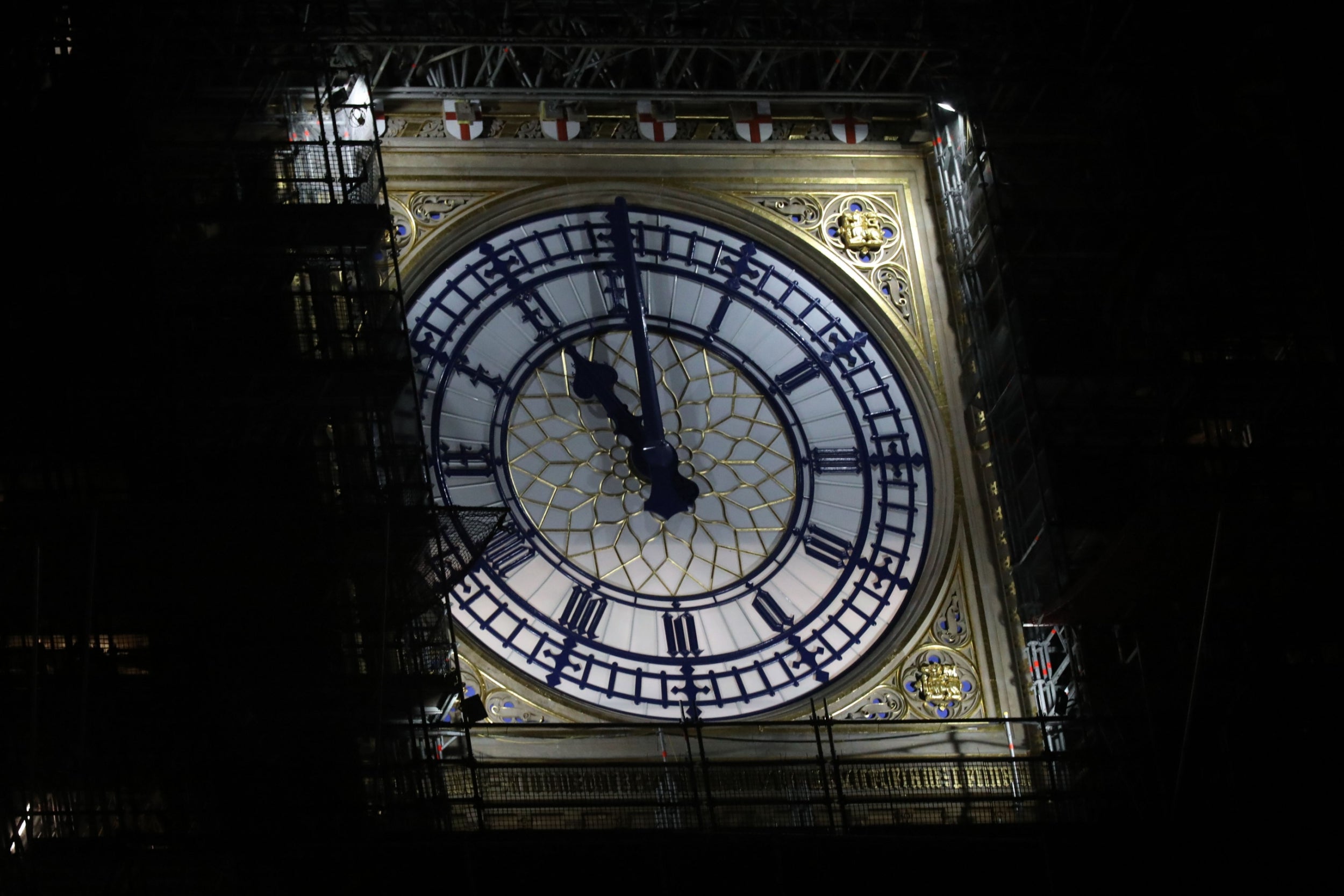
2/37
Big Ben, shows the hands at eleven o’clock at night
AFP via Getty
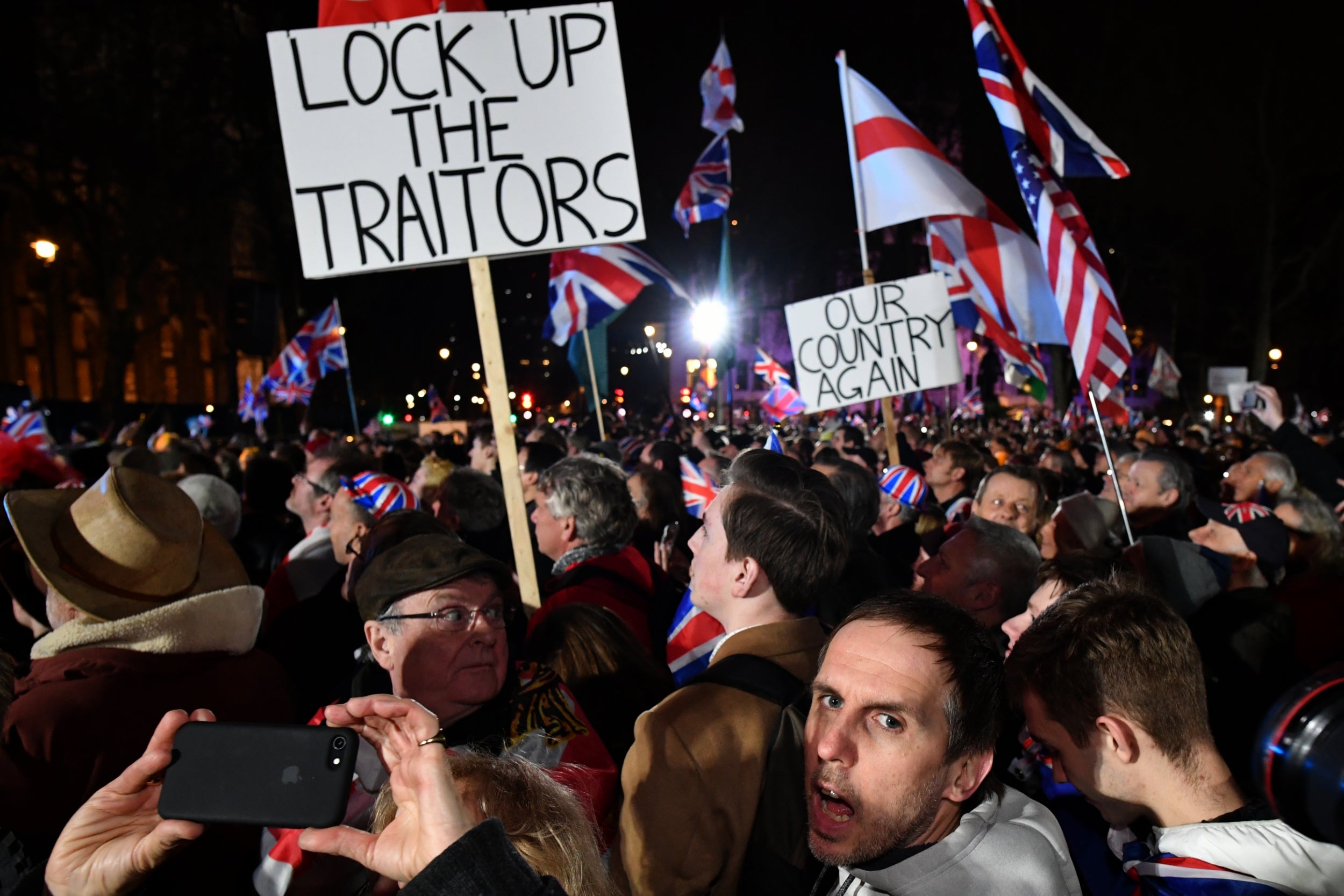
3/37
Pro Brexit supporters attend the Brexit Day Celebration Party hosted by Leave Means Leave
Getty
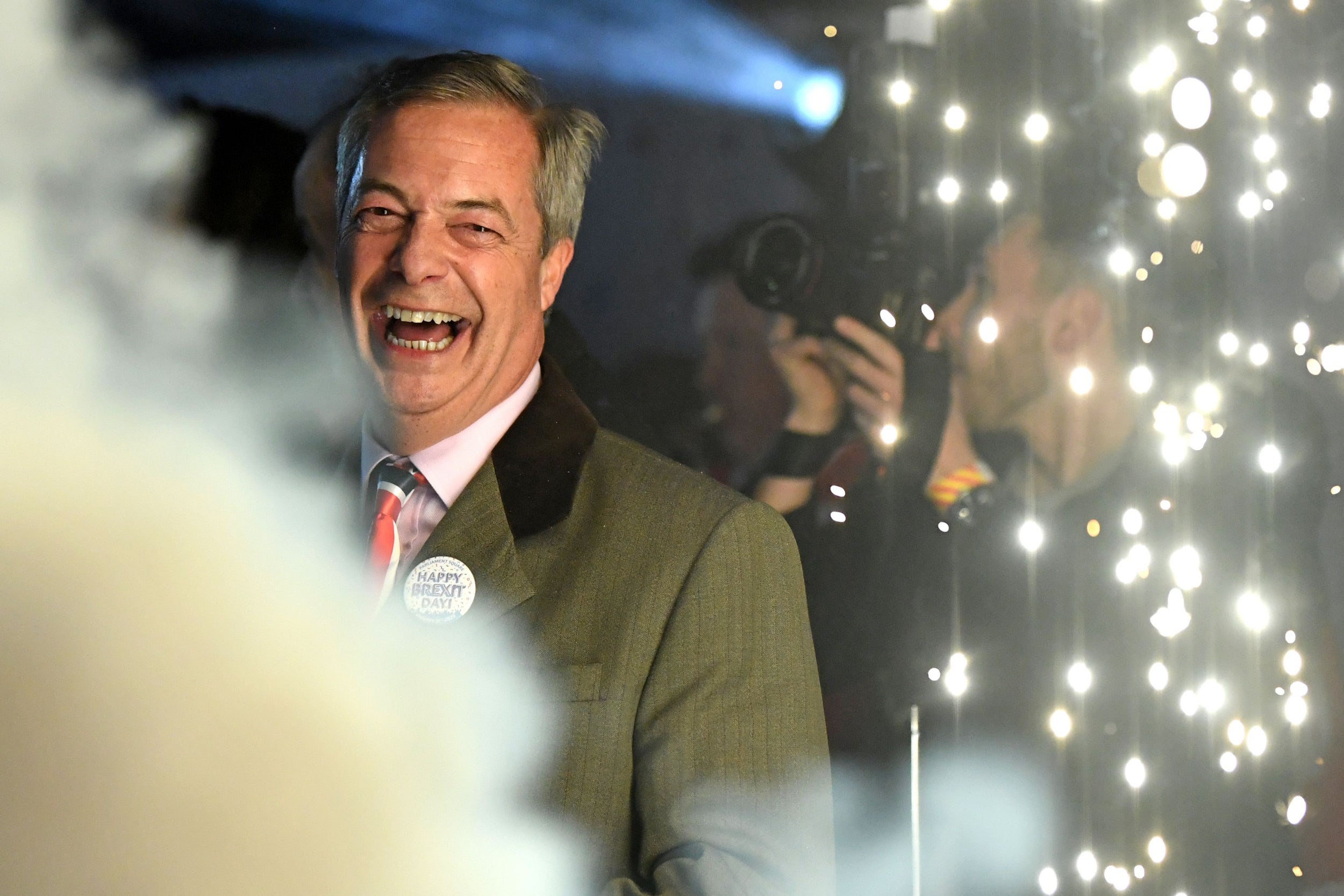
4/37
Brexit Party leader Nigel Farage smiles on stage
AFP/Getty
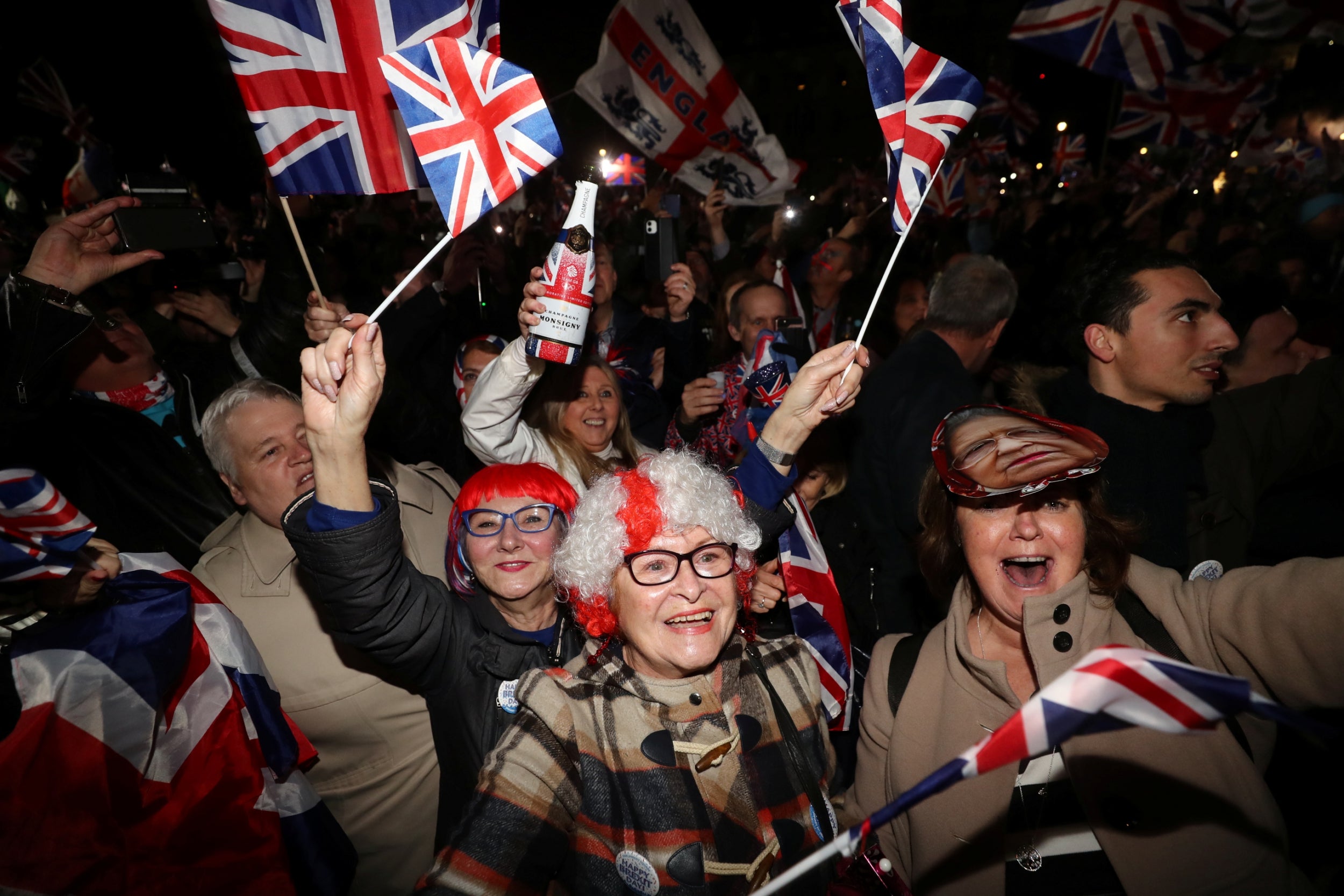
5/37
People celebrate in Parliament Square
Reuters
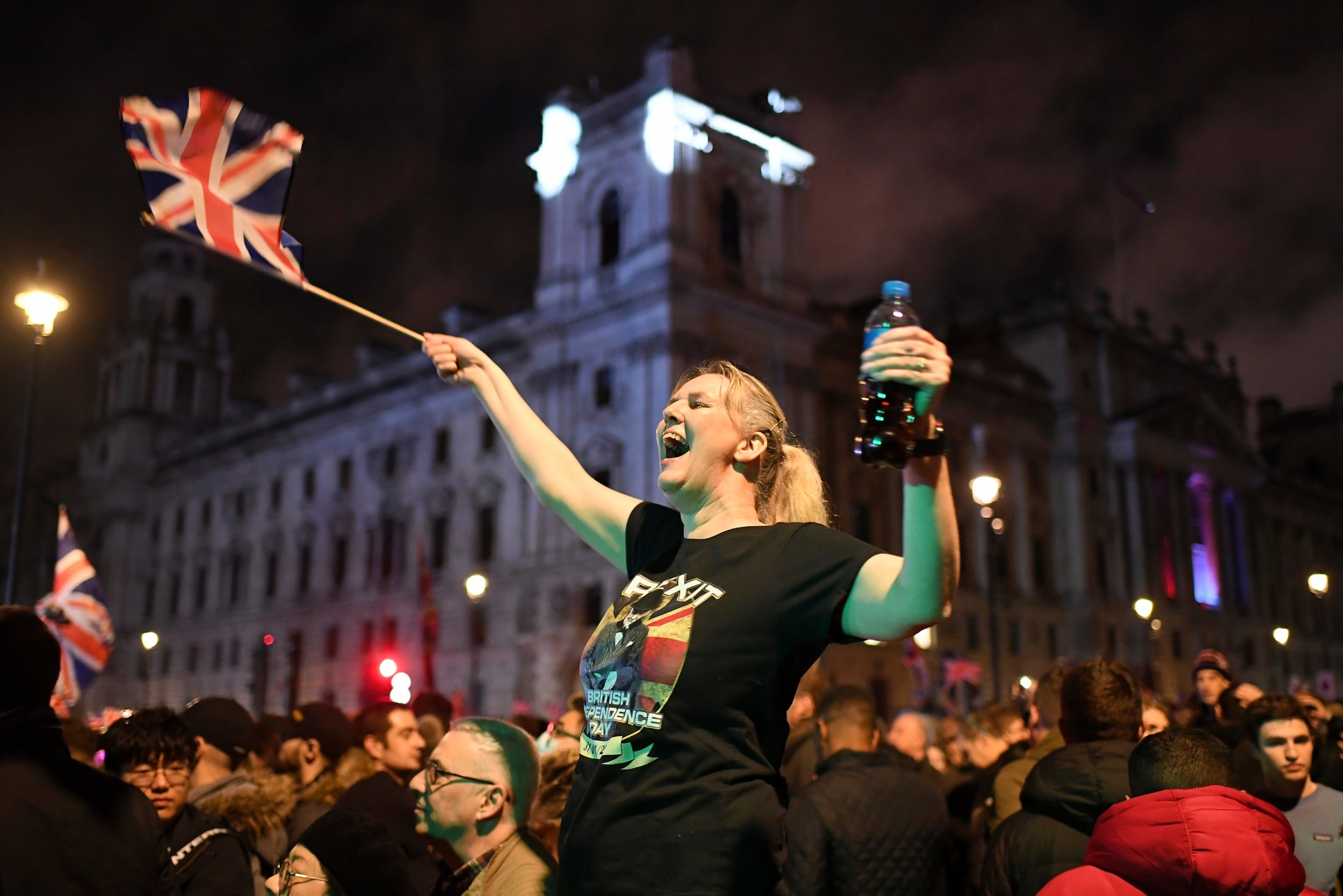
6/37
A Brexit supporter celebrates during a rally in Parliament square
AP
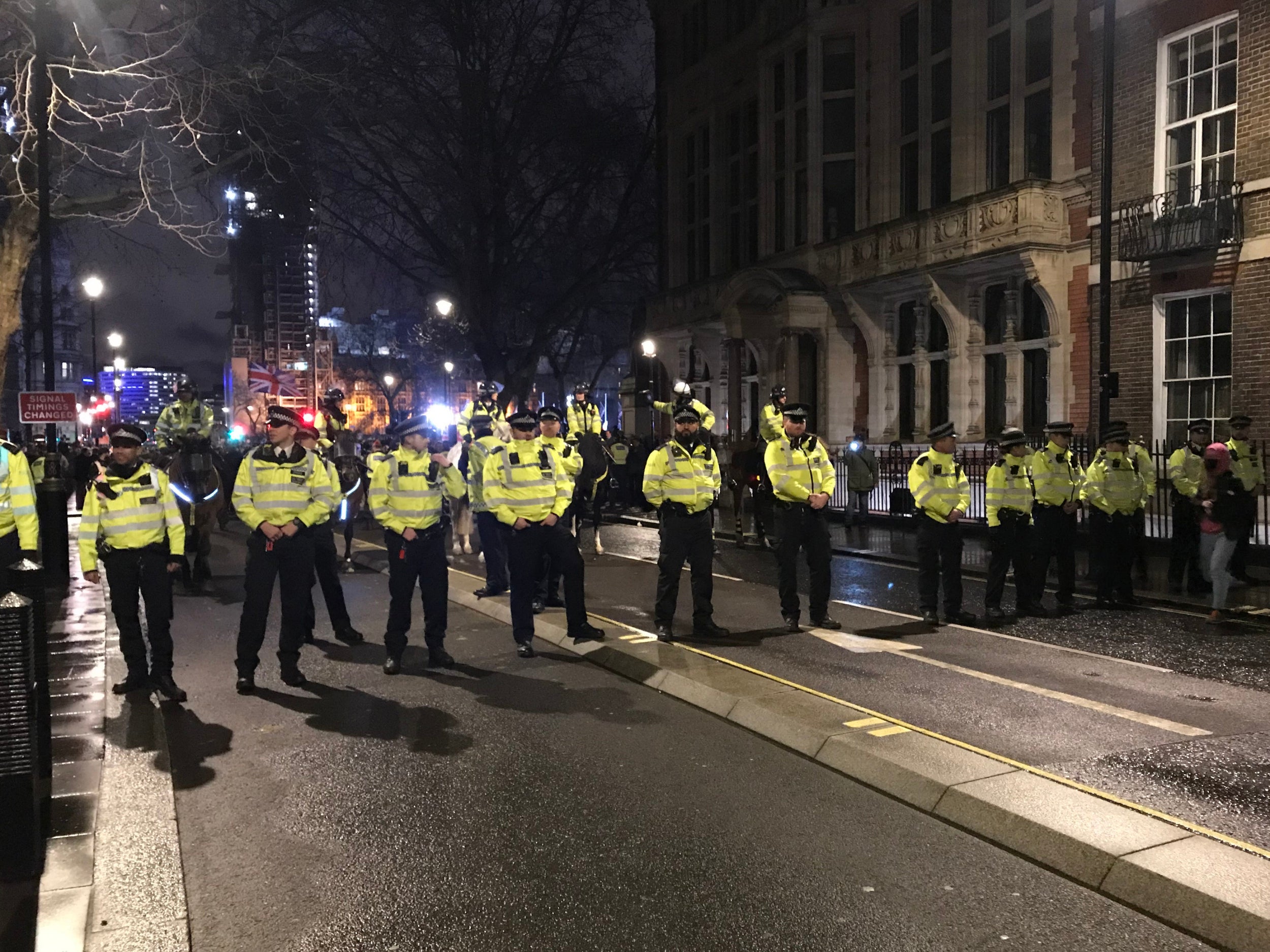
7/37
Police form a line at Parliament Square to prevent a small group of anti-Brexit protestors from going through to the main Brexit rally
PA

8/37
Nigel Farage speaks to pro-Brexit supporters
PA
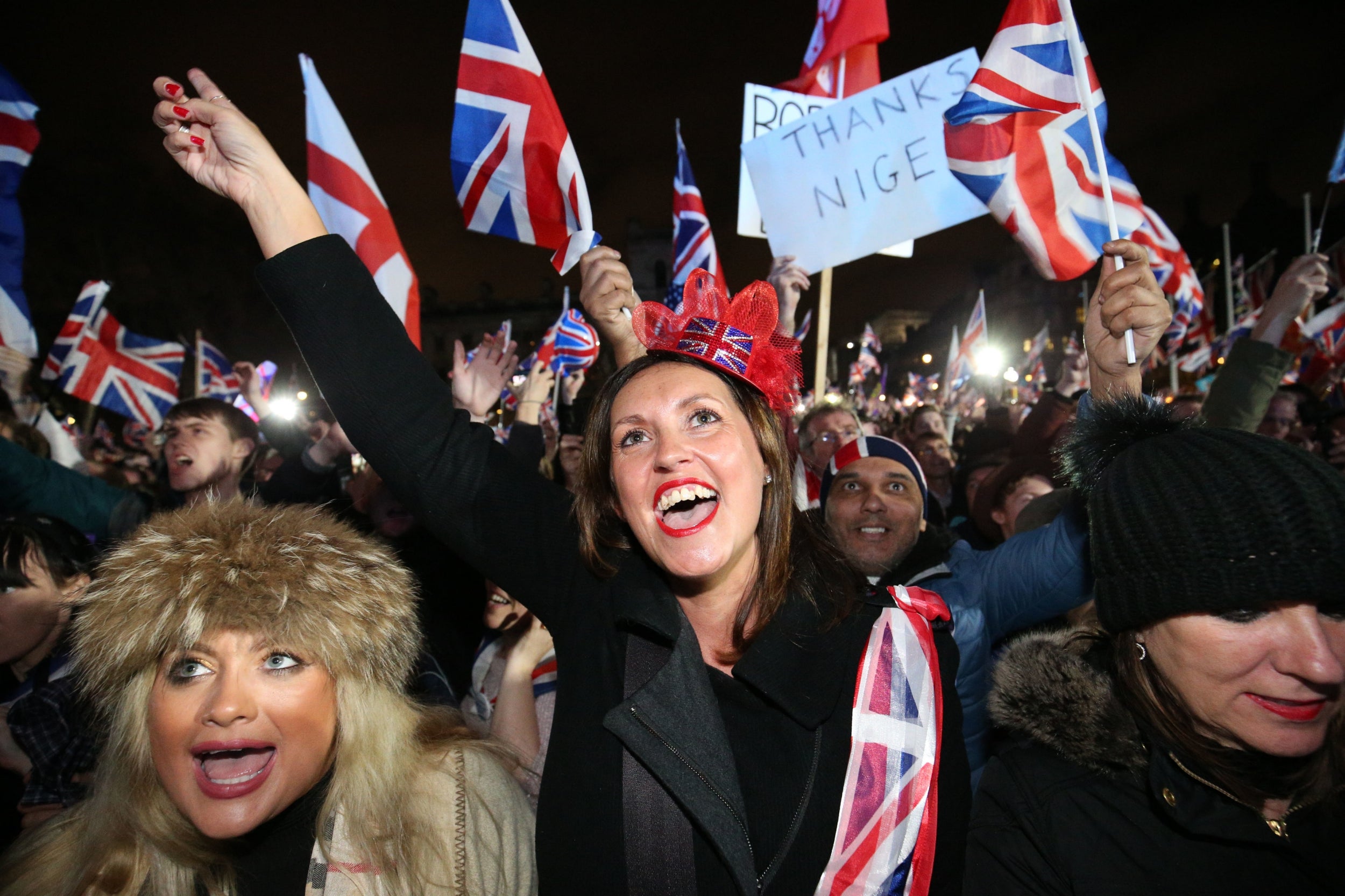
9/37
PA
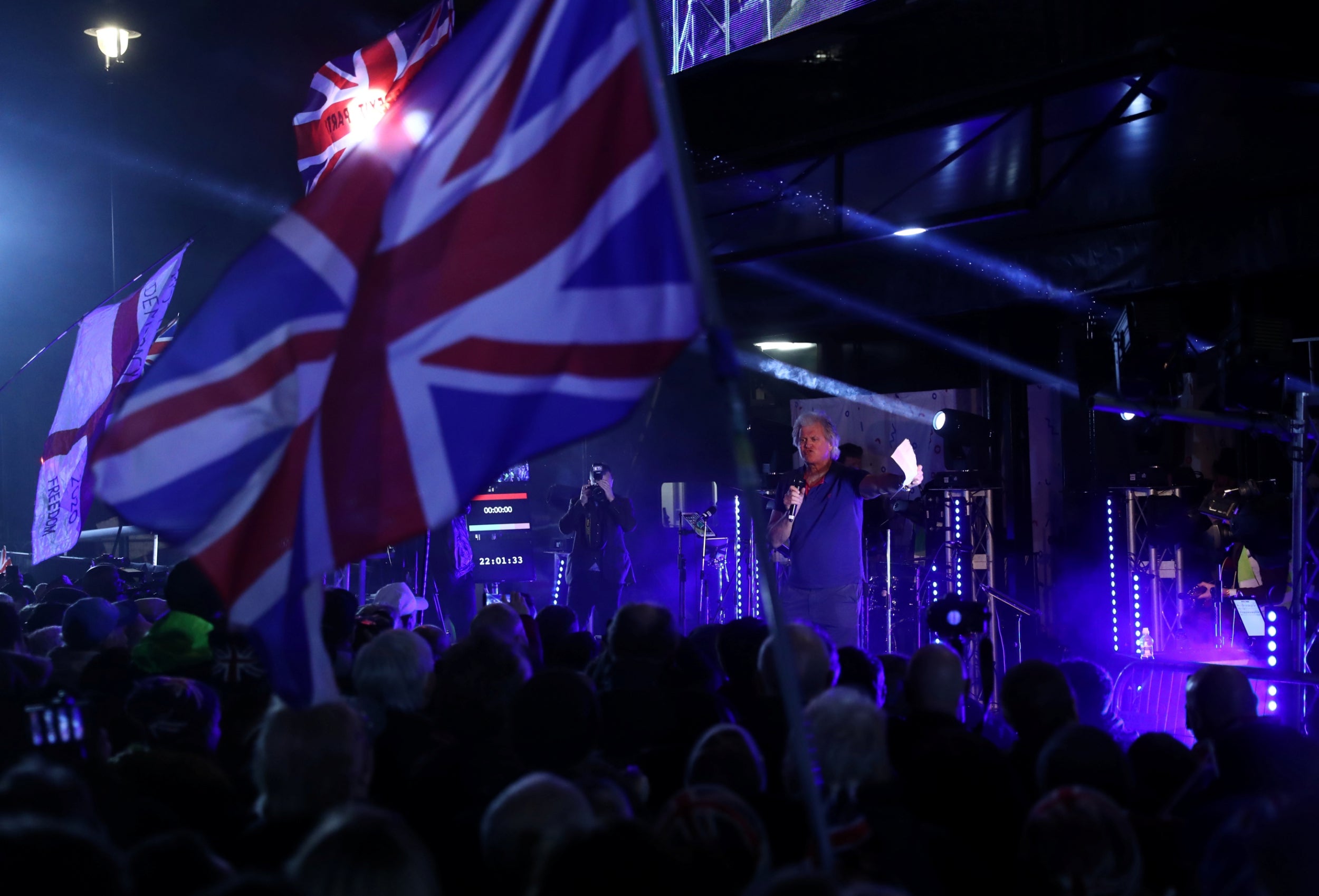
10/37
JD Wetherspoon Chairman Tim Martin speaks as people wave flags
Reuters

11/37
Getty
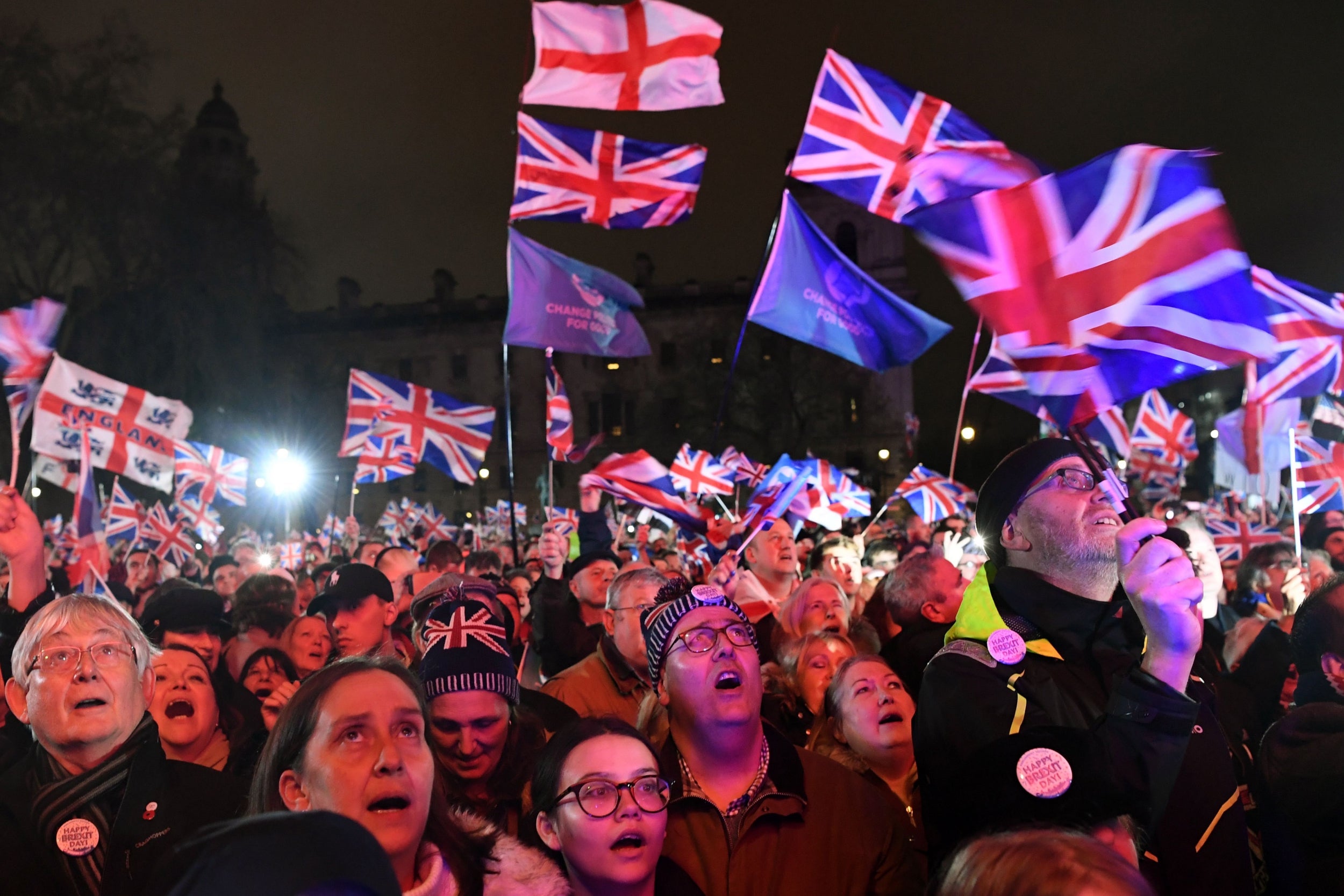
12/37
Brexit supporters wave Union flags as they watch the big screen
AFP via Getty
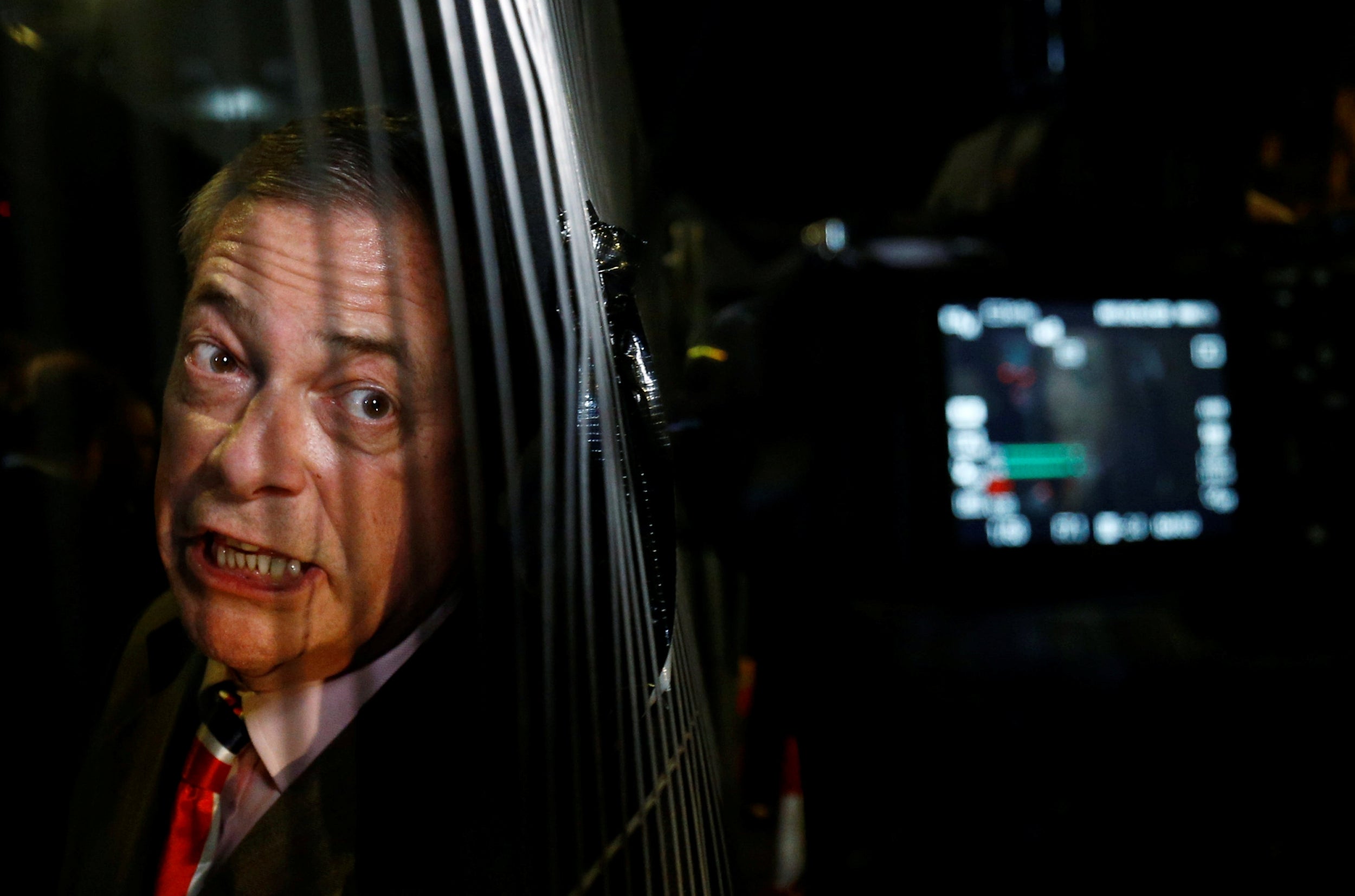
13/37
Brexit Party leader, Nigel Farage arrives
Reuters
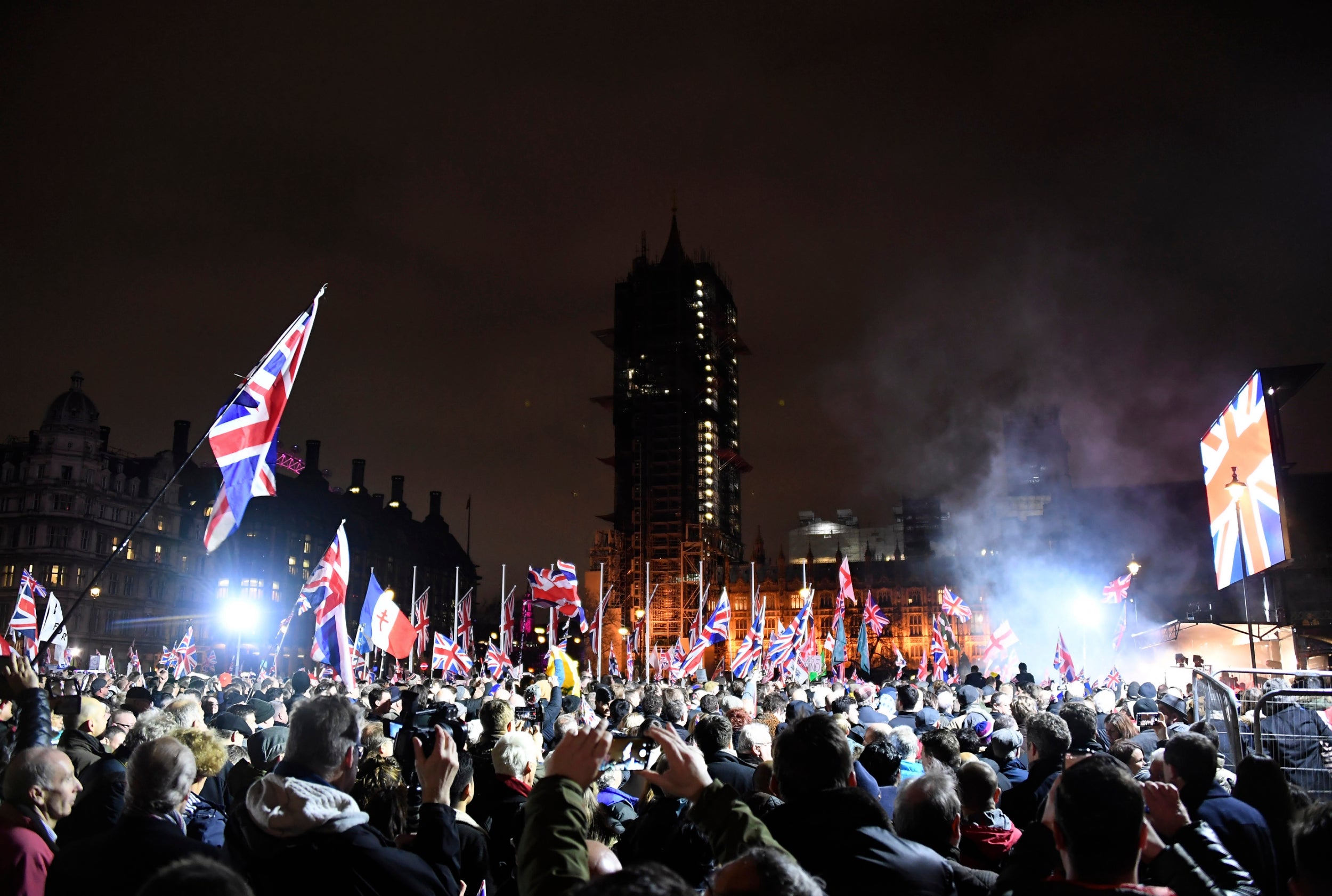
14/37
Brexit supporters gather
AP
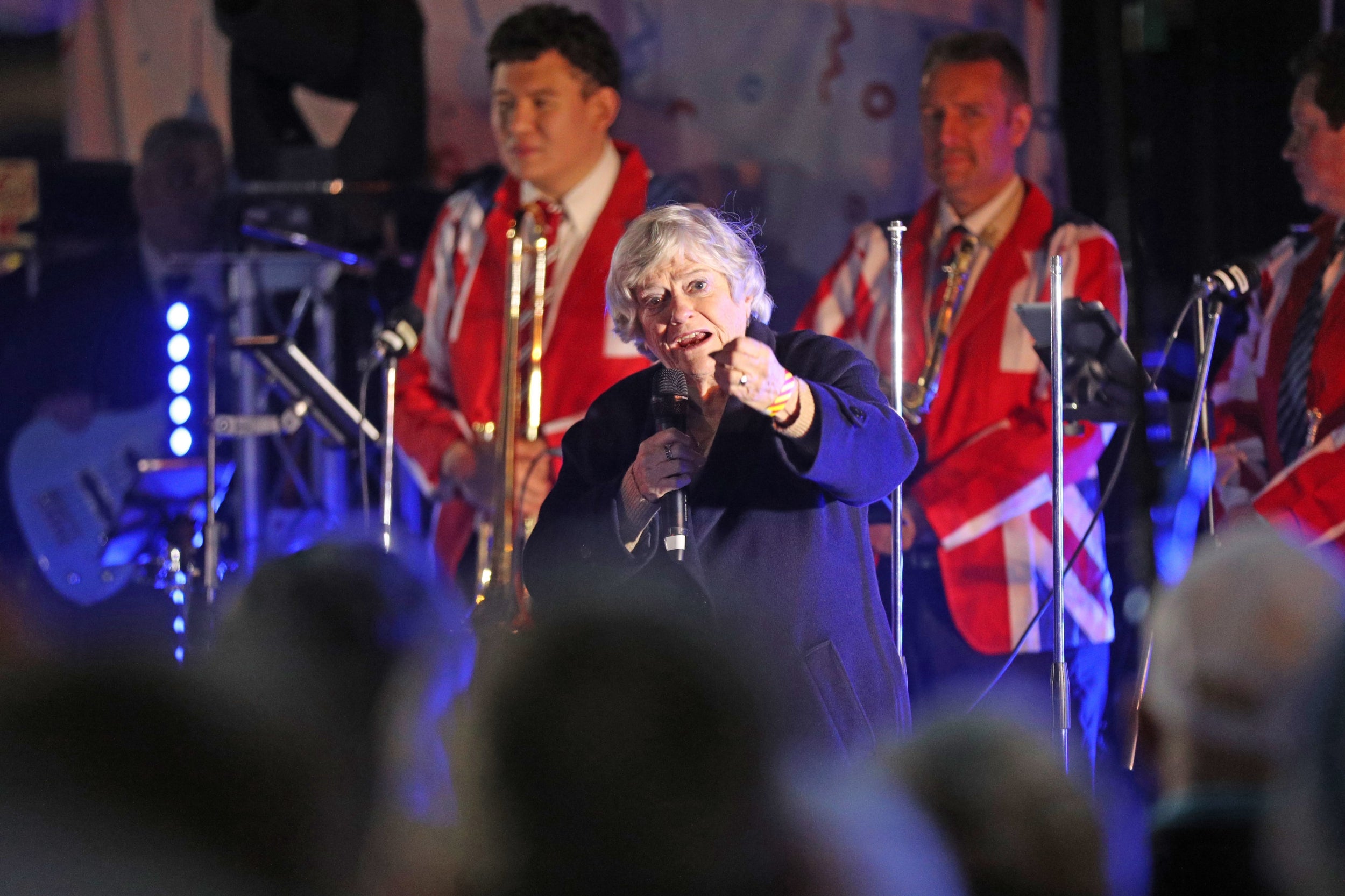
15/37
Ann Widdecombe speaks to pro-Brexit supporters
PA
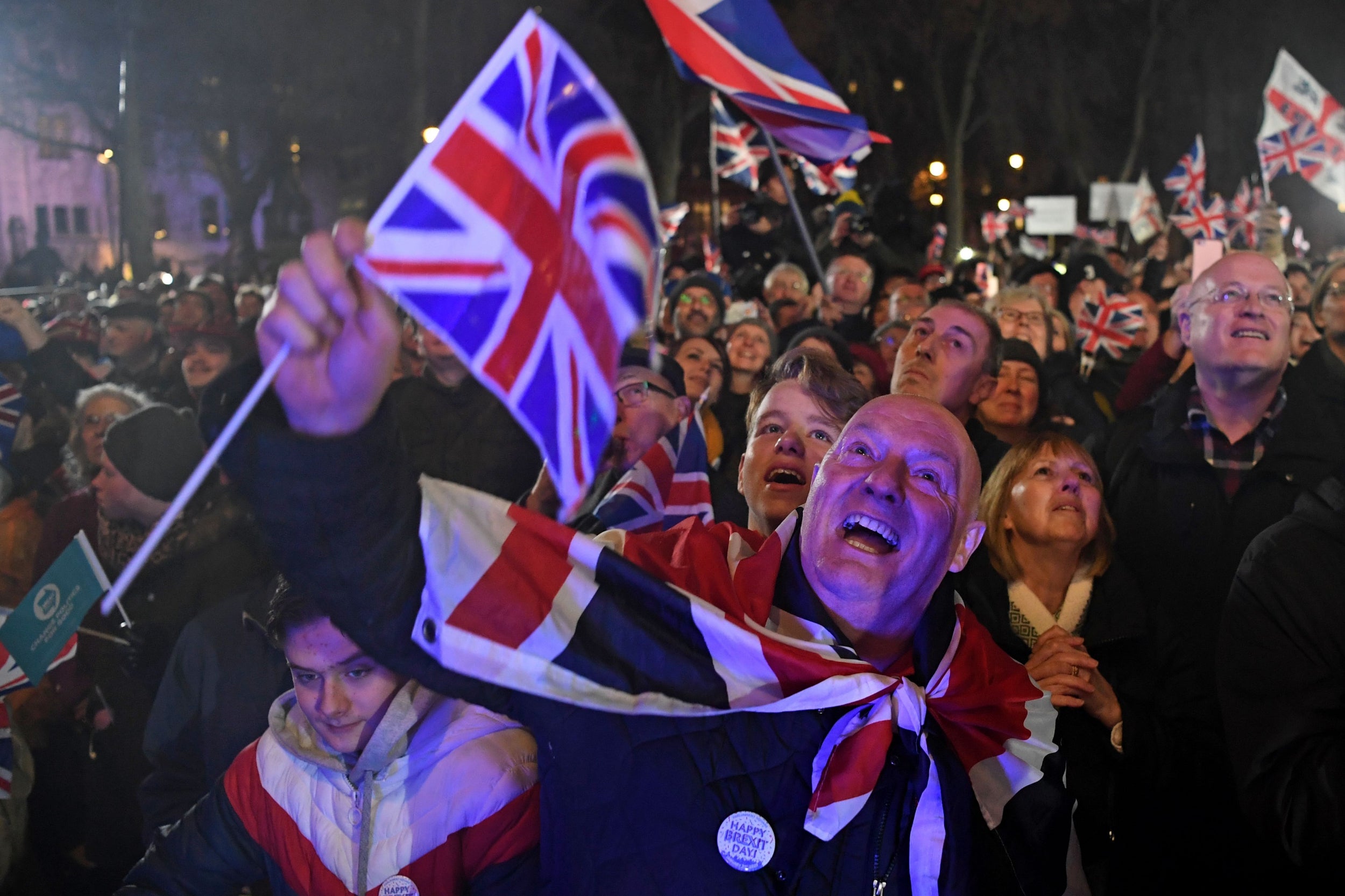
16/37
Brexit supporters wave Union flags as they watch the big screen
AFP via Getty
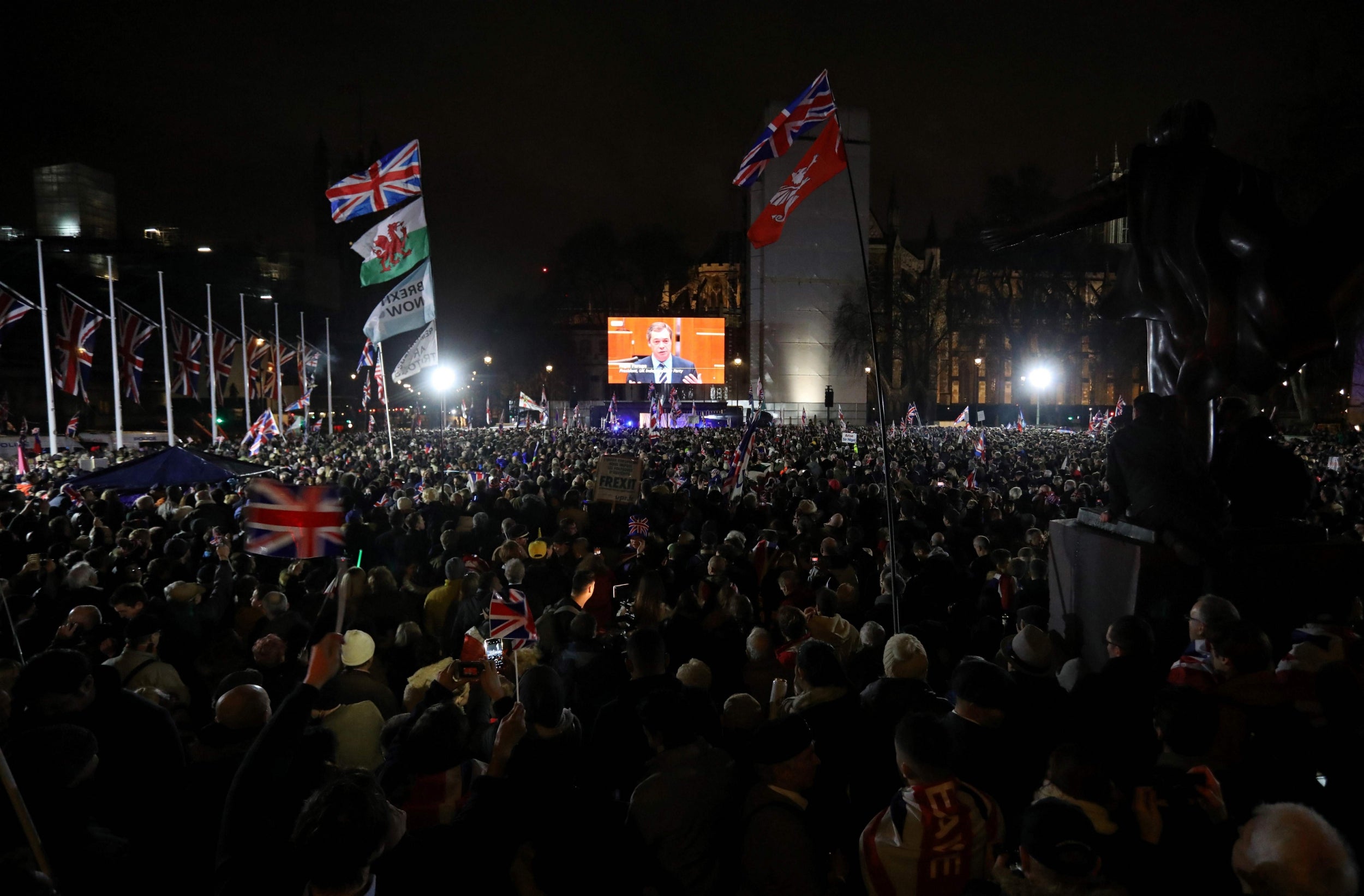
17/37
AFP via Getty

18/37
People wave British Union Jack flags as they celebrate
Reuters
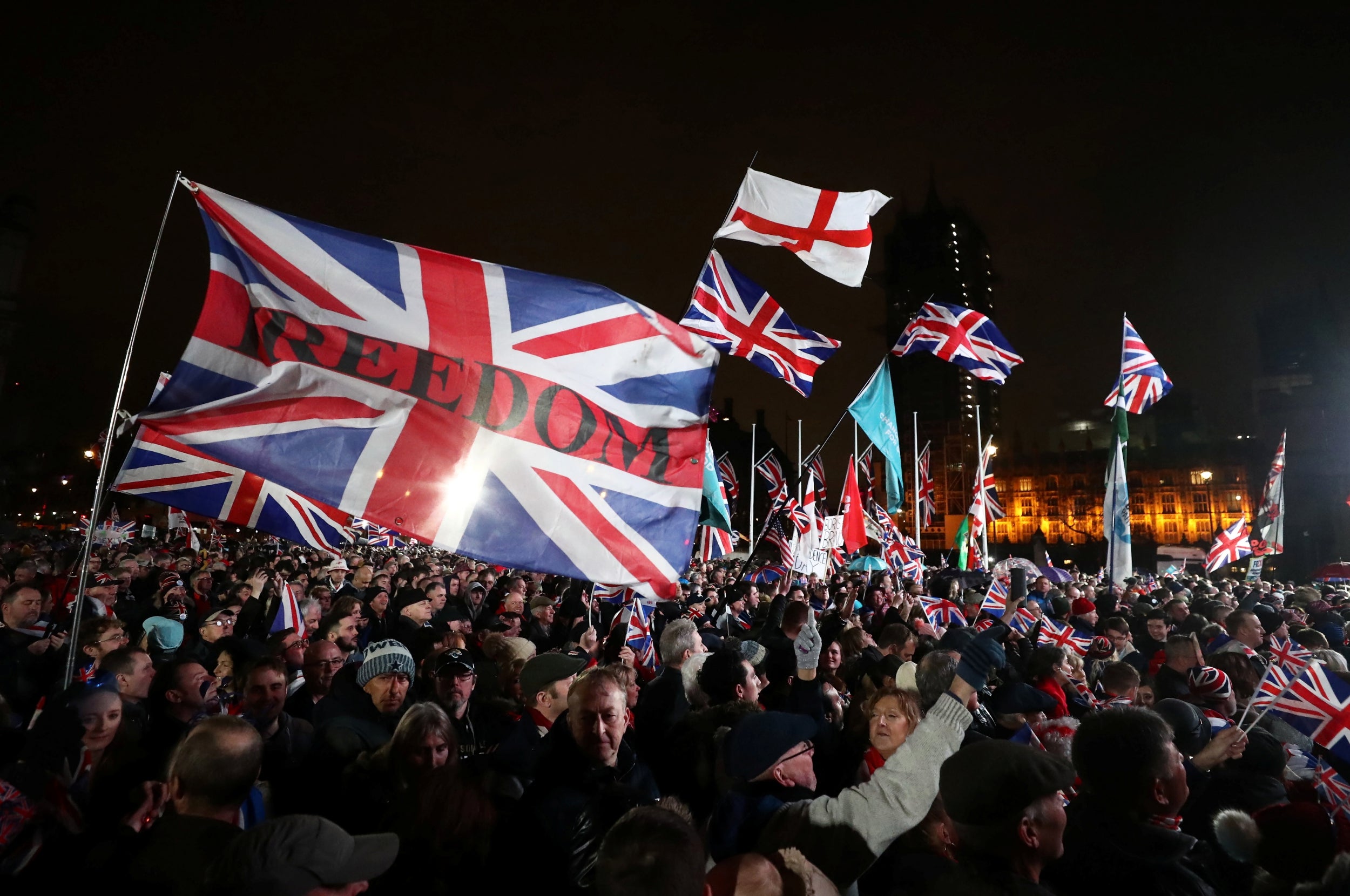
19/37
Pro-Brexit demonstrators celebrate on Parliament Square on Brexit day
Reuters

20/37
A pro-Brexit supporter jumps on an EU flag
PA
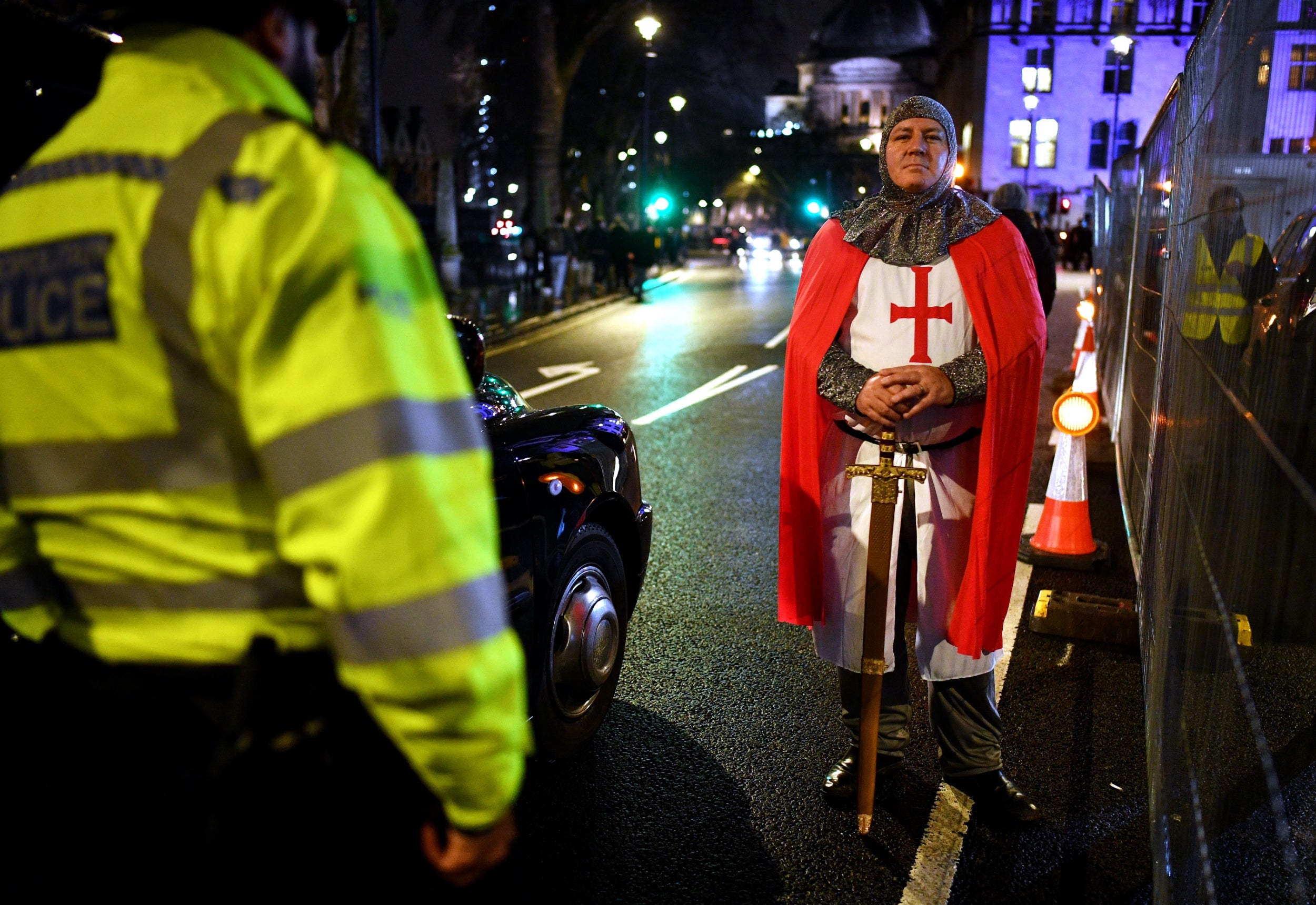
21/37
Getty

22/37
AFP via Getty
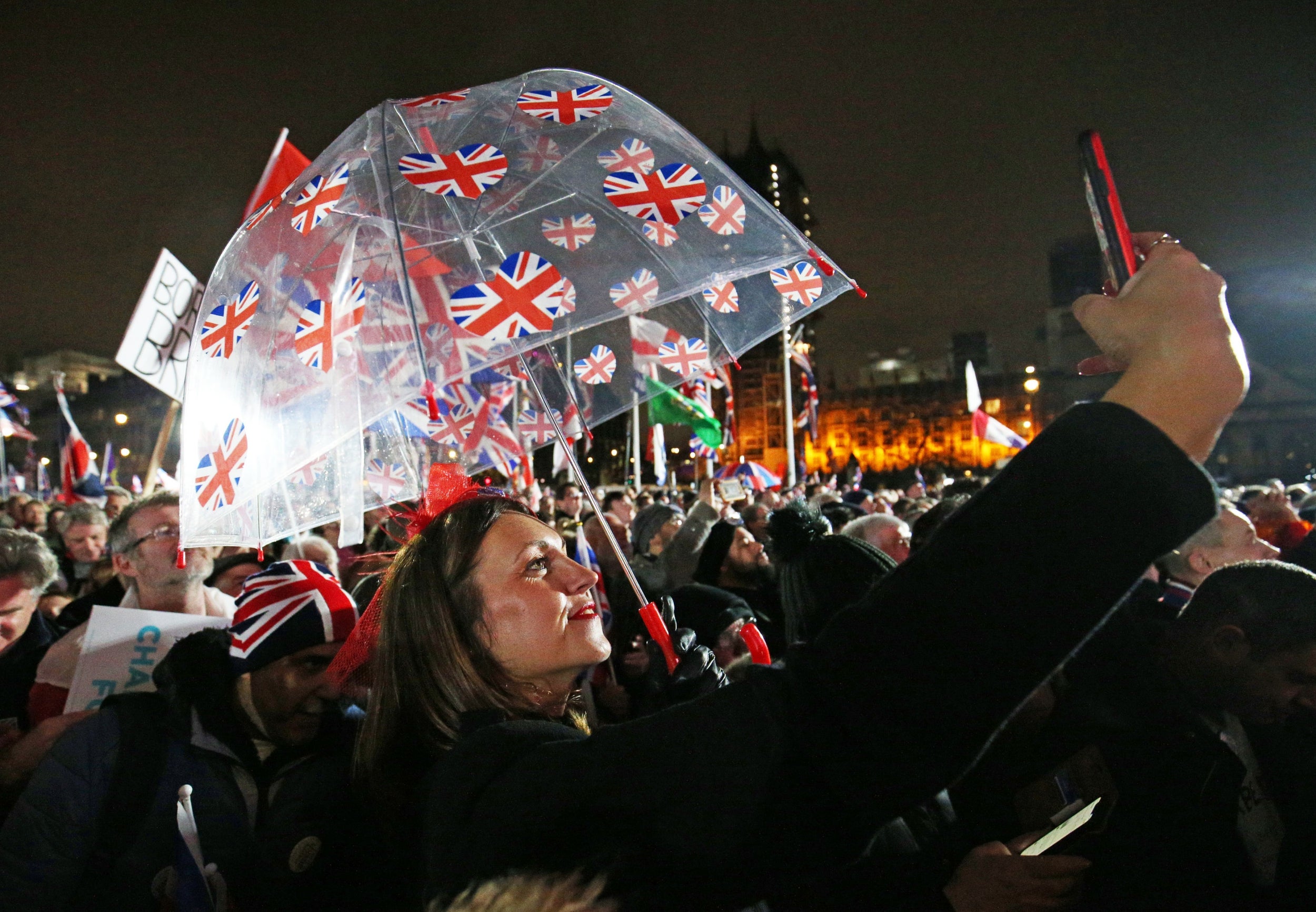
23/37
PA
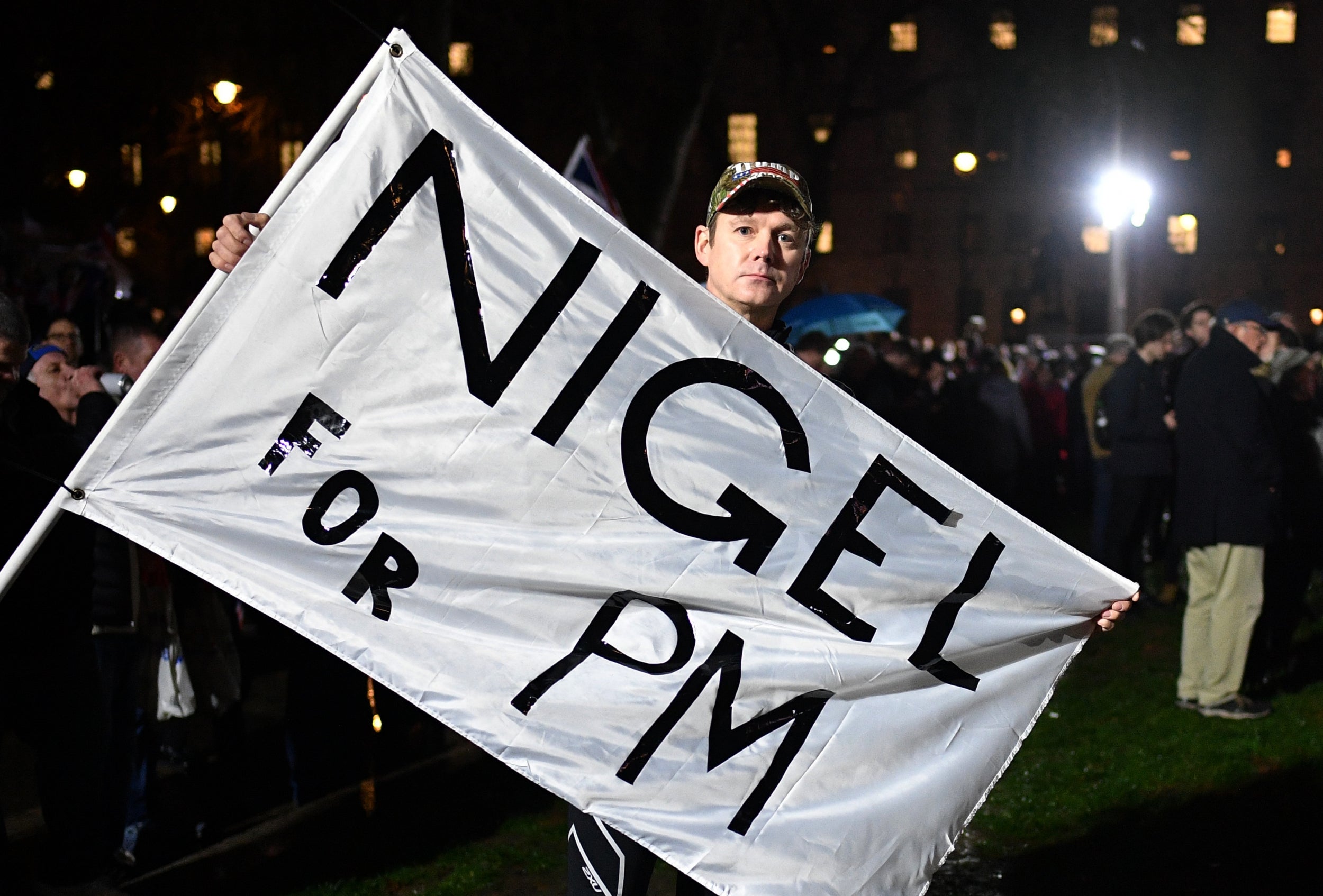
24/37
Getty
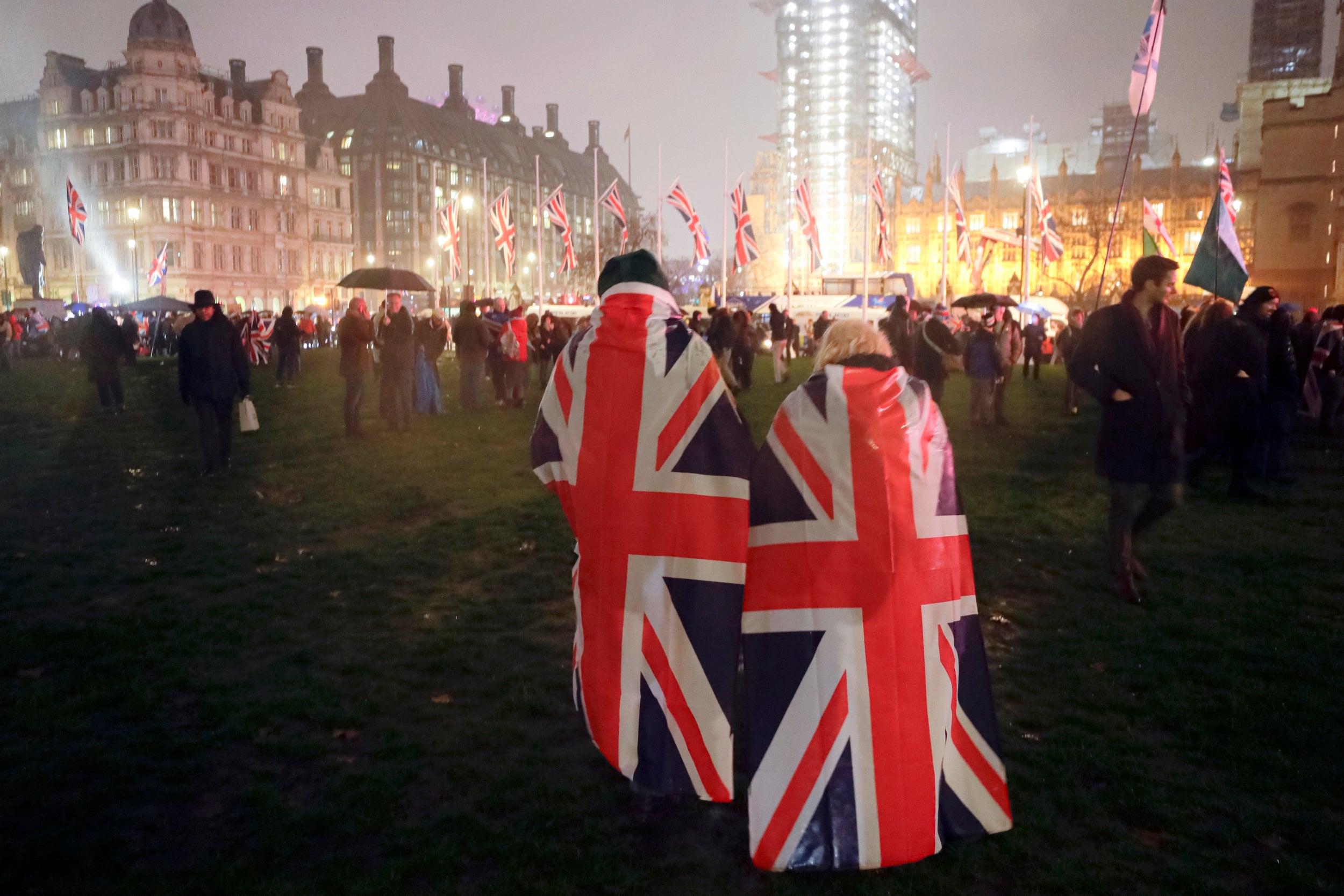
25/37
AP
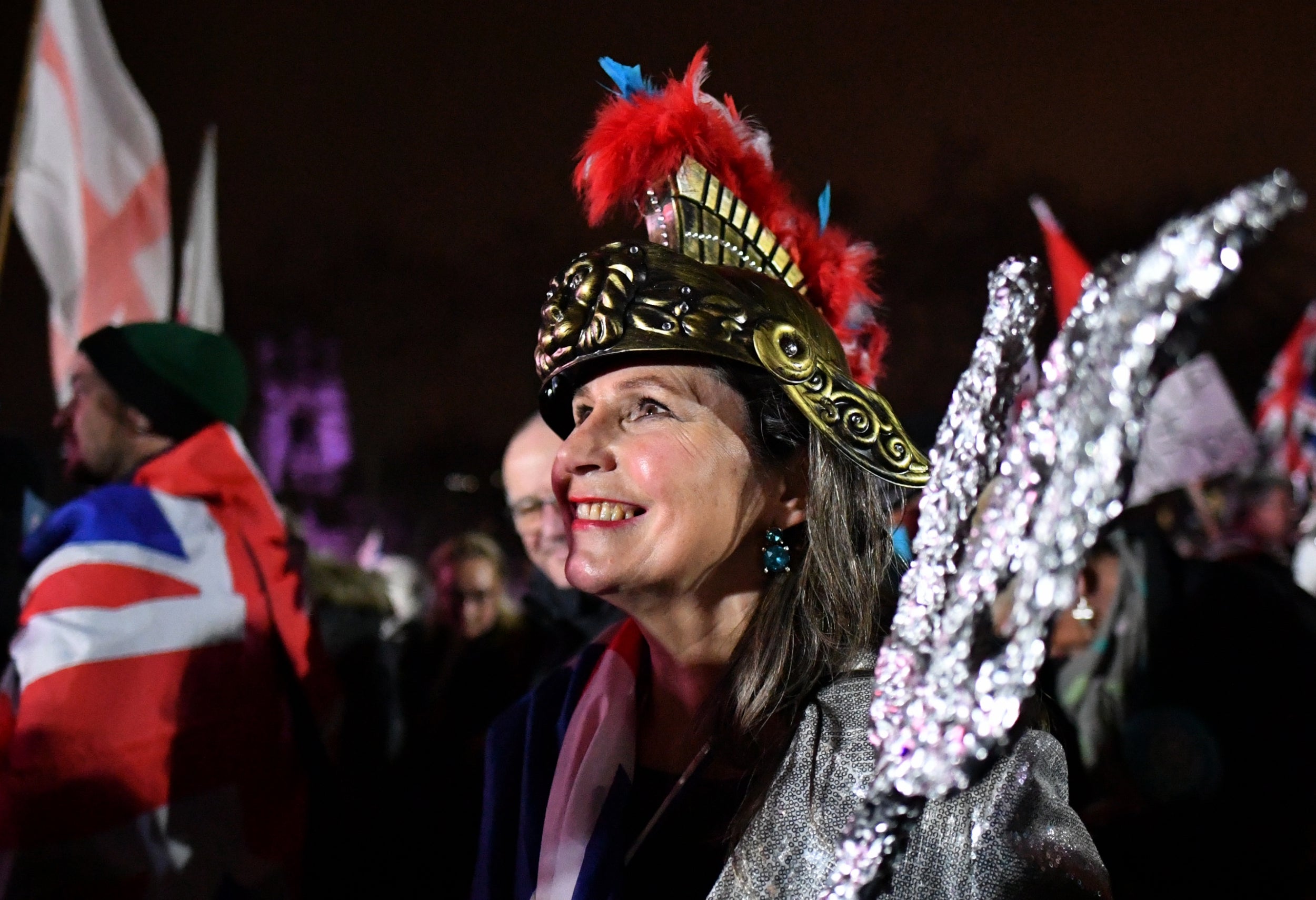
26/37
Getty
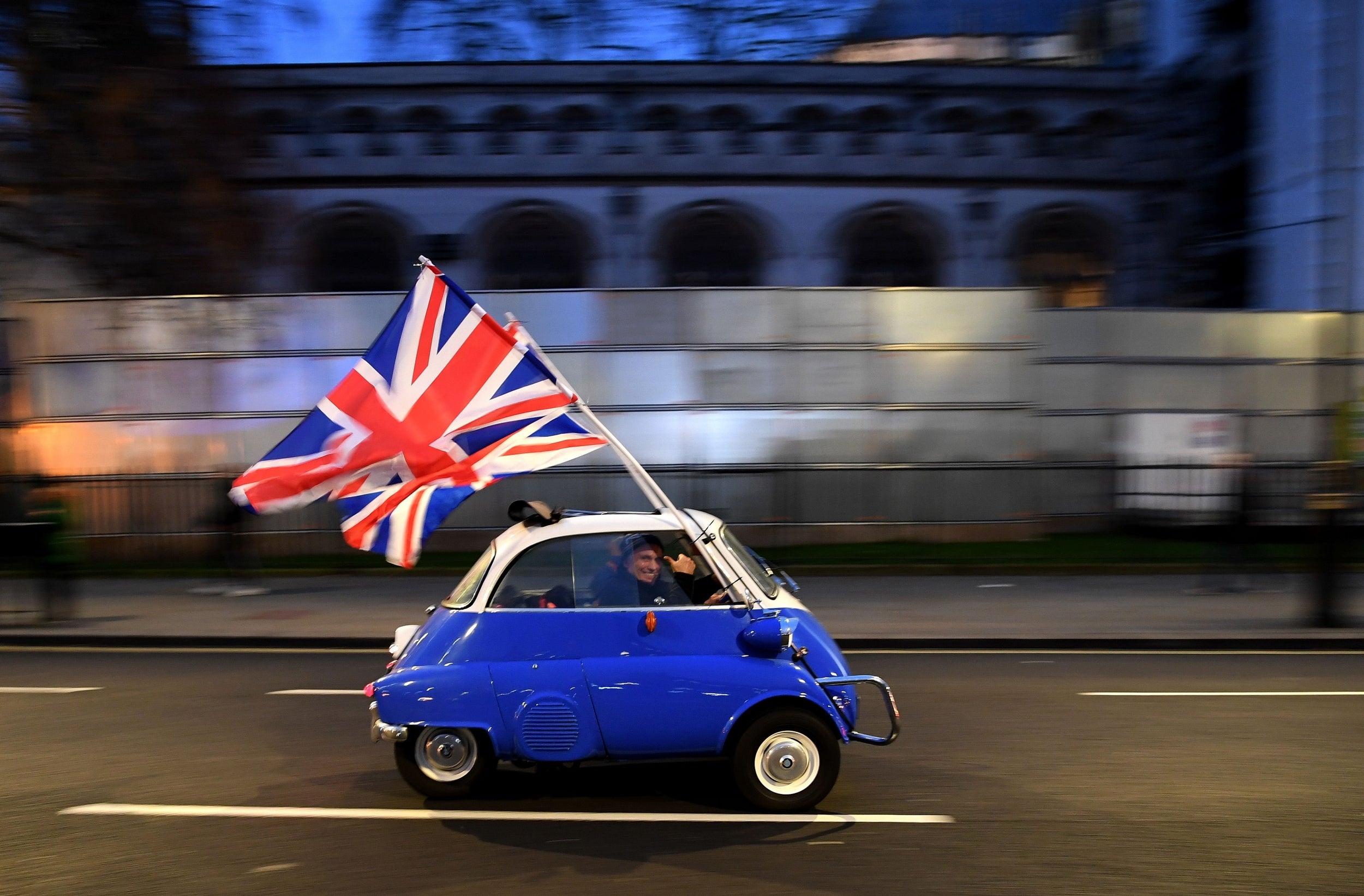
27/37
A man waves Union flags from a small car as he drives past Brexit supporters gathering
AFP via Getty
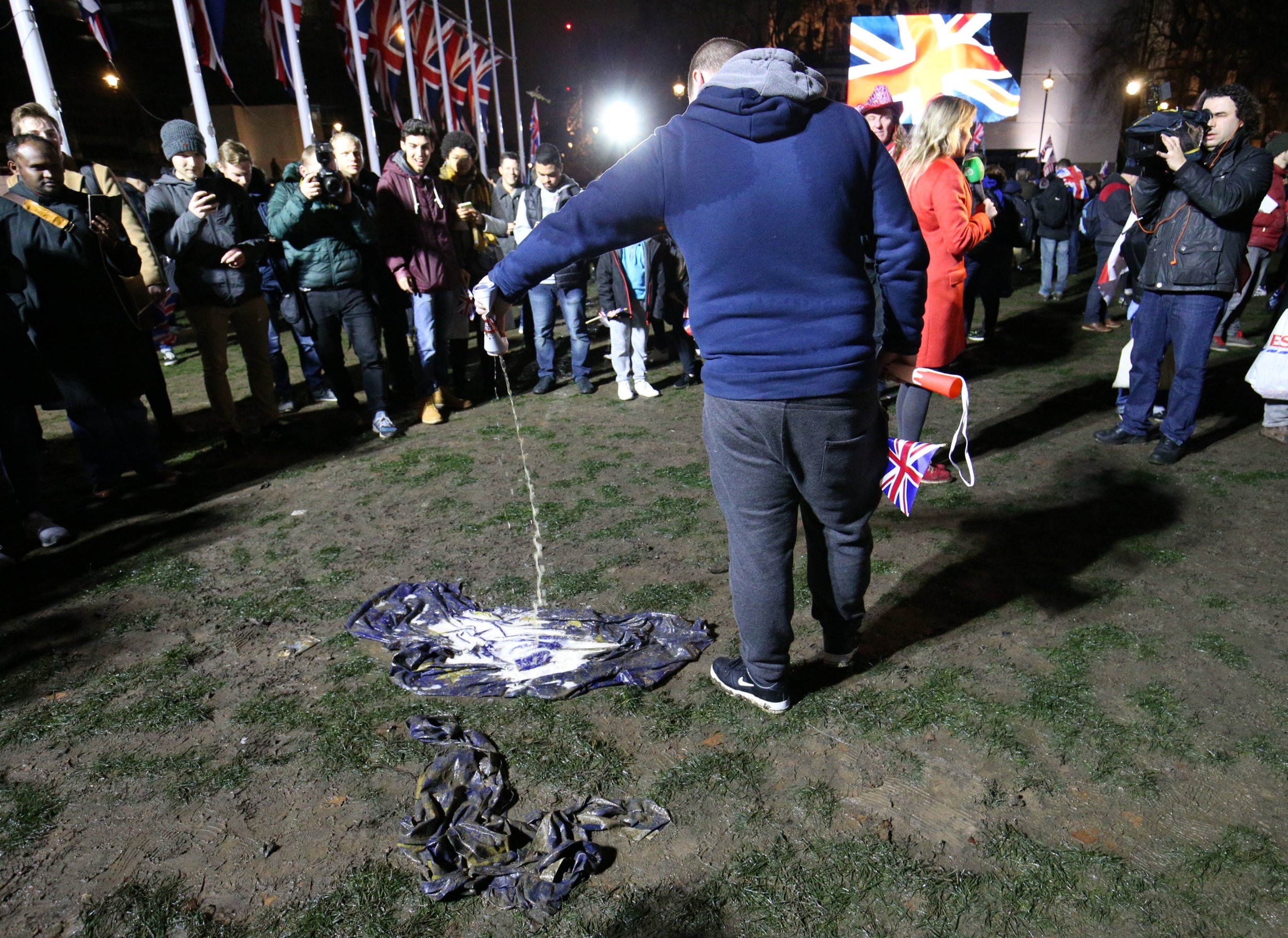
28/37
A pro-Brexit supporter pours beer onto an EU flag
PA

29/37
Getty
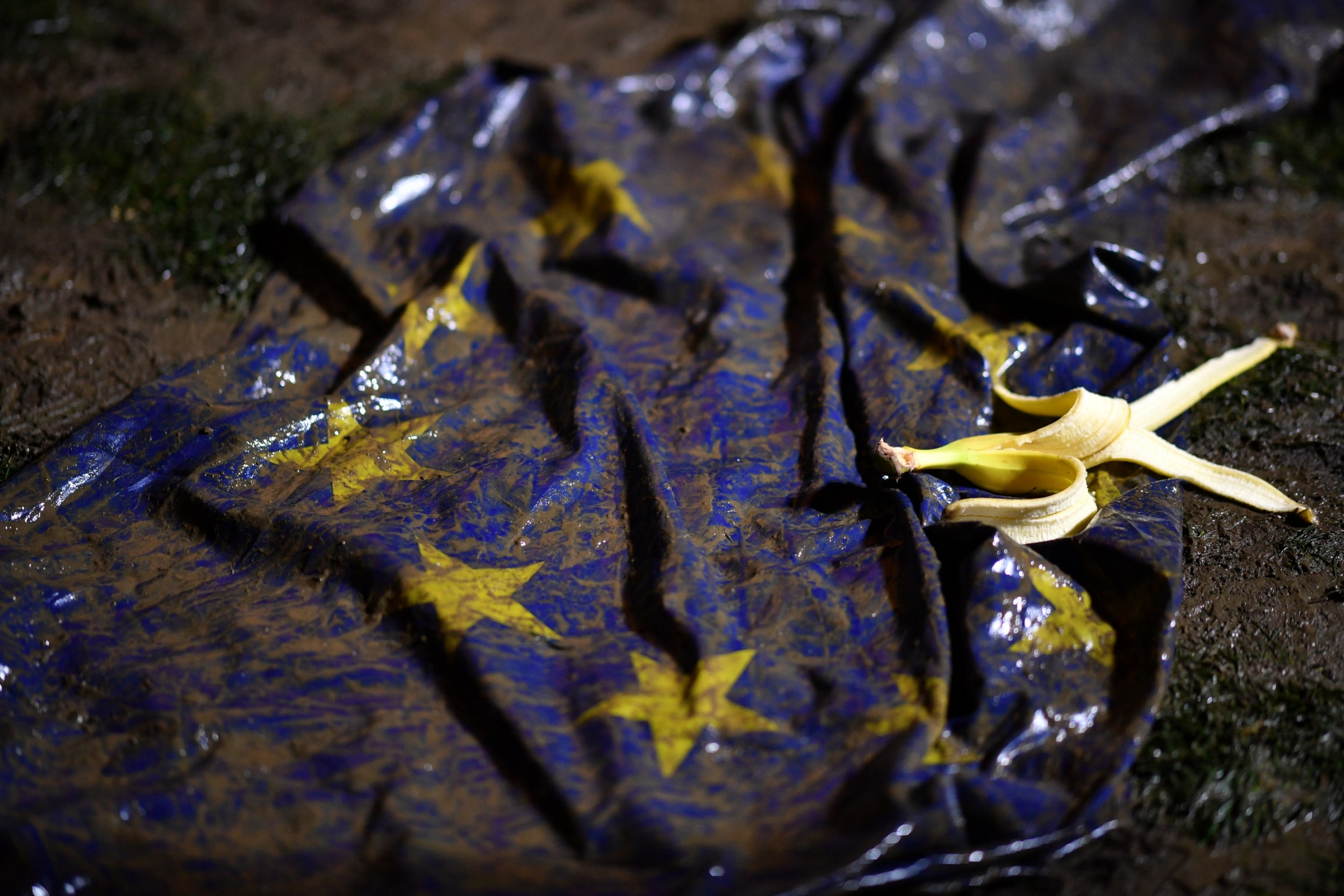
30/37
An EU flag lies trampled in the mud
Getty
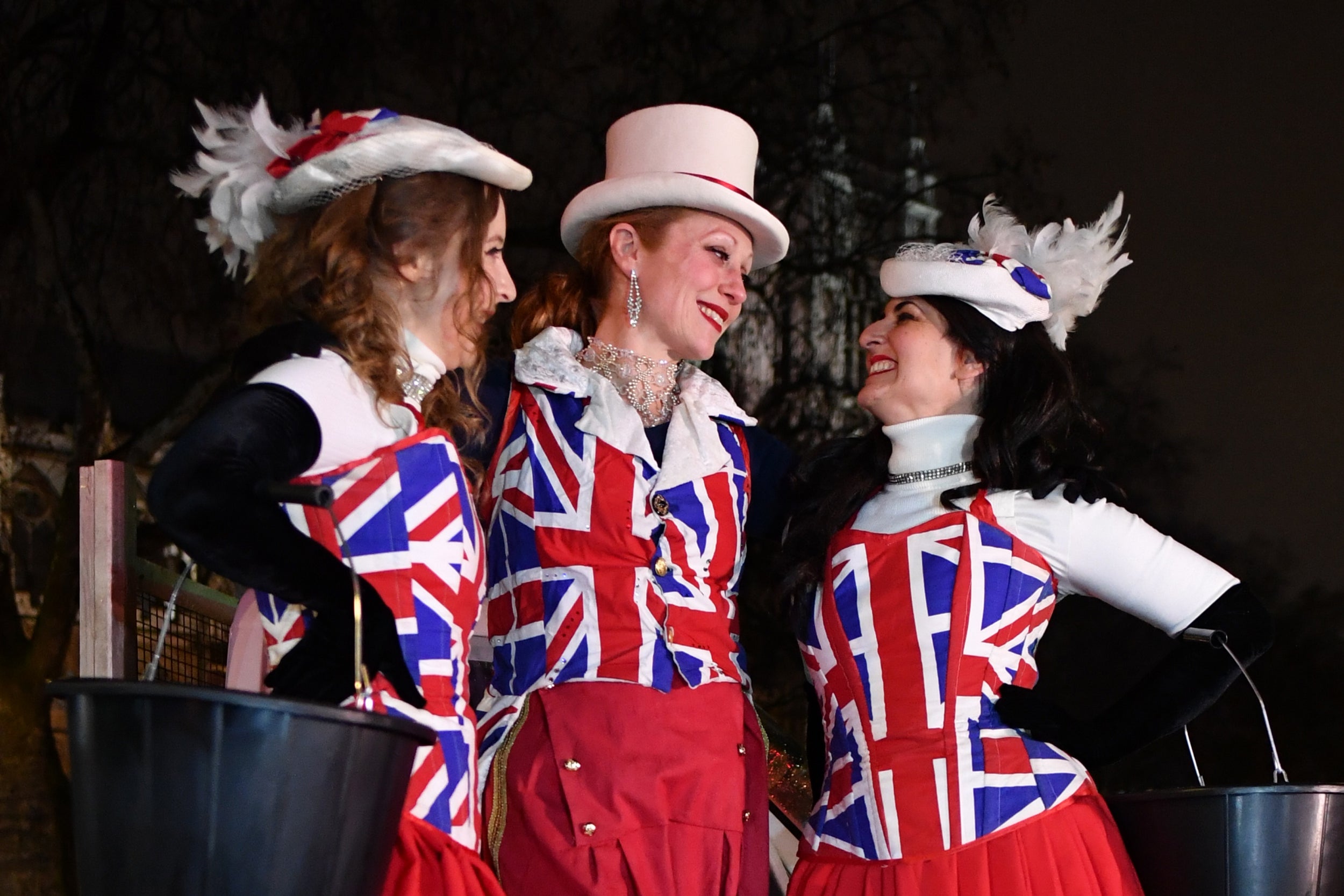
31/37
Getty
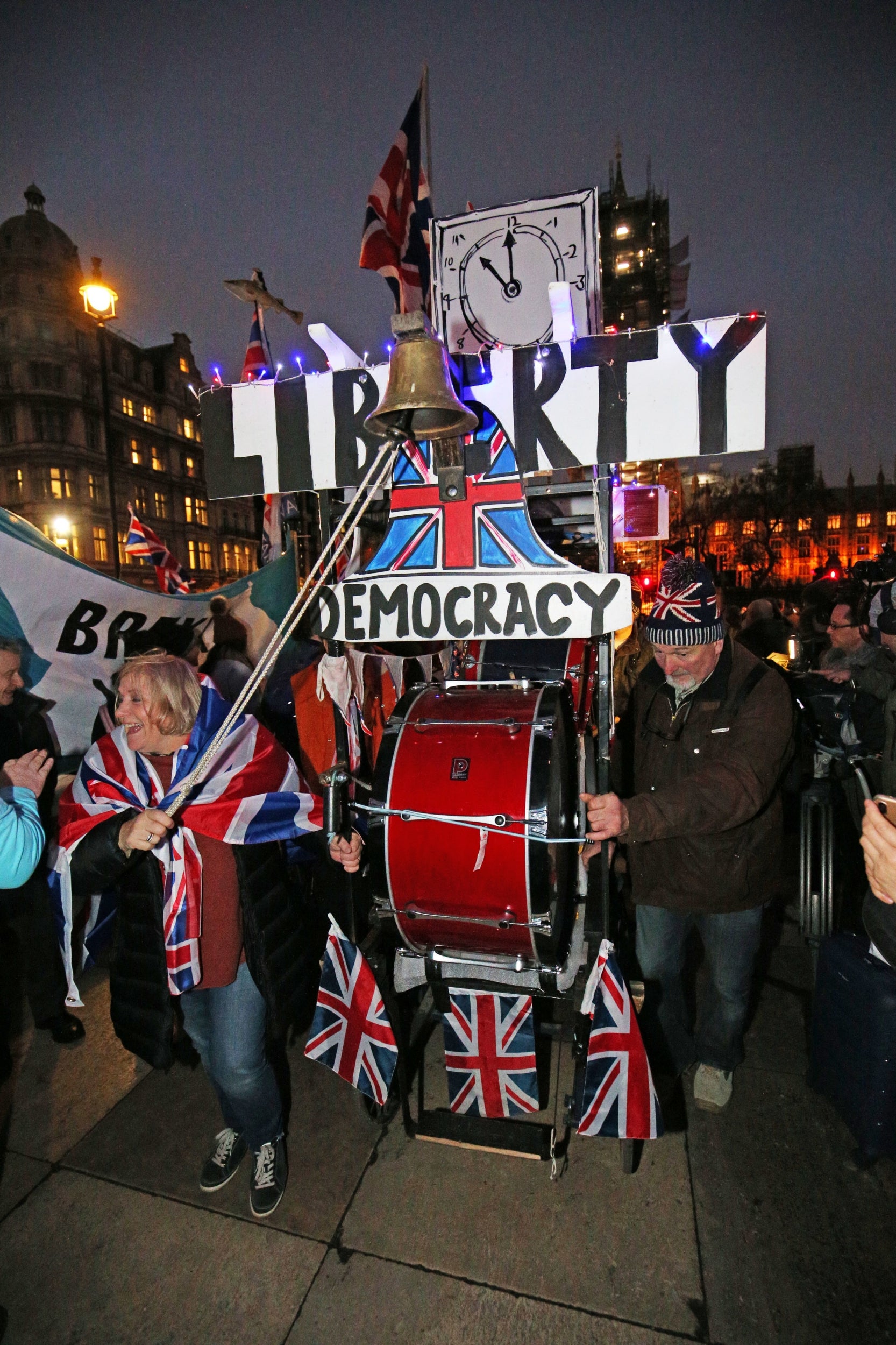
32/37
PA

33/37
PA

34/37
Getty
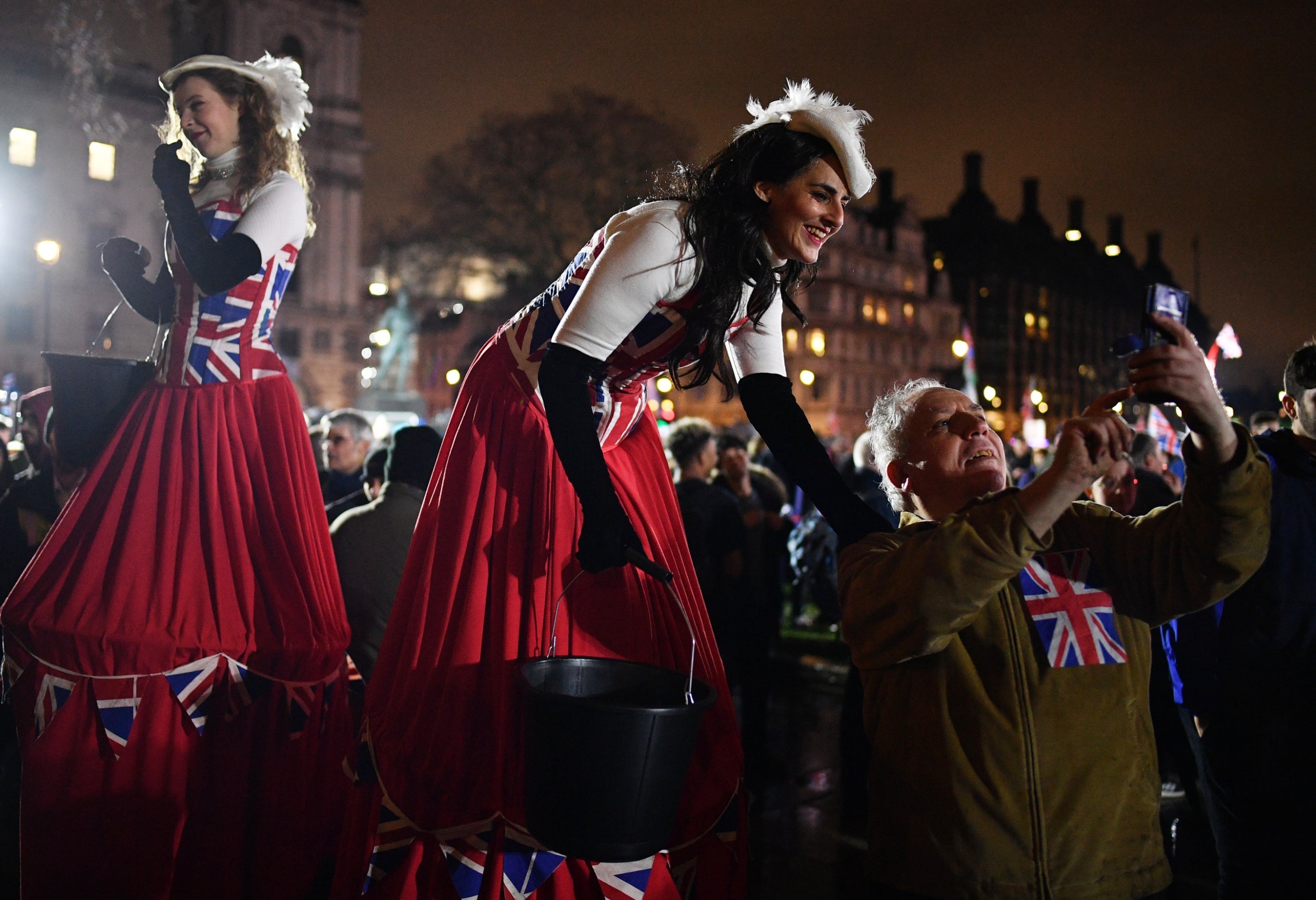
35/37
Getty
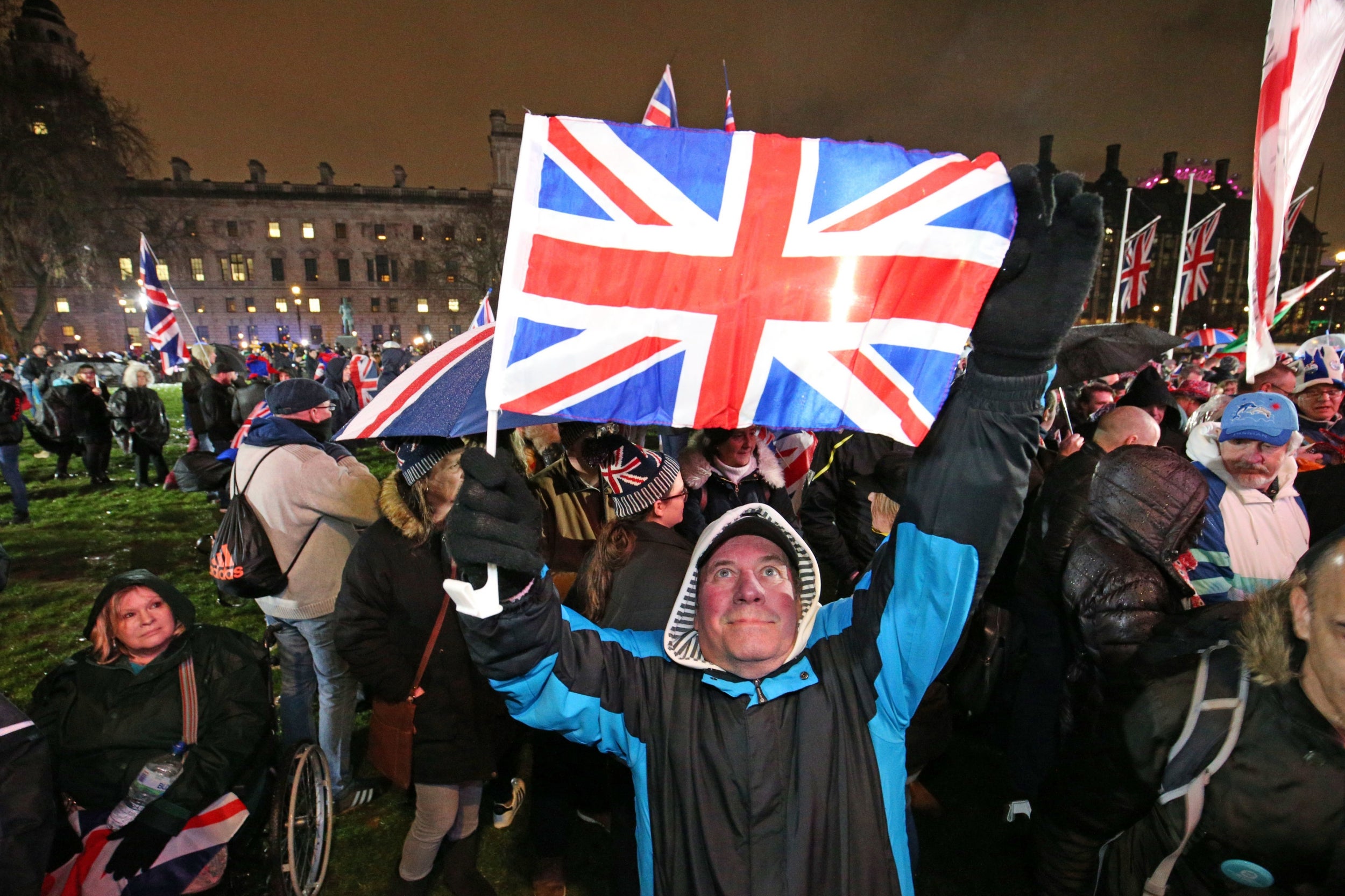
36/37
PA
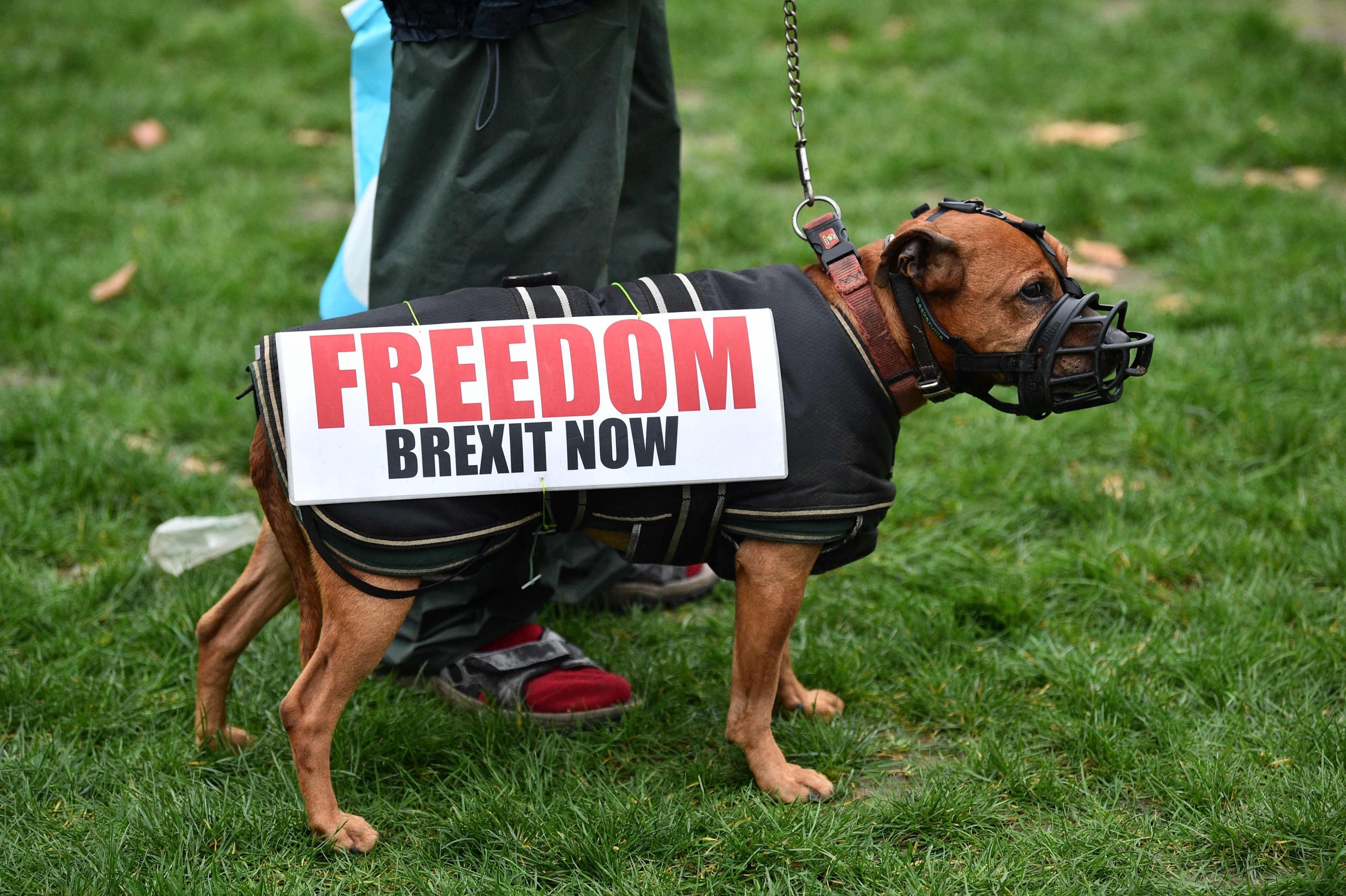
37/37
AFP via Getty

1/37
Pro-Brexit supporters celebrating in Parliament Square, after the UK left the European Union on 31 January. Ending 47 years of membership
PA

2/37
Big Ben, shows the hands at eleven o’clock at night
AFP via Getty

3/37
Pro Brexit supporters attend the Brexit Day Celebration Party hosted by Leave Means Leave
Getty

4/37
Brexit Party leader Nigel Farage smiles on stage
AFP/Getty

5/37
People celebrate in Parliament Square
Reuters

6/37
A Brexit supporter celebrates during a rally in Parliament square
AP

7/37
Police form a line at Parliament Square to prevent a small group of anti-Brexit protestors from going through to the main Brexit rally
PA

8/37
Nigel Farage speaks to pro-Brexit supporters
PA

9/37
PA

10/37
JD Wetherspoon Chairman Tim Martin speaks as people wave flags
Reuters

11/37
Getty

12/37
Brexit supporters wave Union flags as they watch the big screen
AFP via Getty

13/37
Brexit Party leader, Nigel Farage arrives
Reuters

14/37
Brexit supporters gather
AP

15/37
Ann Widdecombe speaks to pro-Brexit supporters
PA

16/37
Brexit supporters wave Union flags as they watch the big screen
AFP via Getty

17/37
AFP via Getty

18/37
People wave British Union Jack flags as they celebrate
Reuters

19/37
Pro-Brexit demonstrators celebrate on Parliament Square on Brexit day
Reuters

20/37
A pro-Brexit supporter jumps on an EU flag
PA

21/37
Getty

22/37
AFP via Getty

23/37
PA

24/37
Getty

25/37
AP

26/37
Getty

27/37
A man waves Union flags from a small car as he drives past Brexit supporters gathering
AFP via Getty

28/37
A pro-Brexit supporter pours beer onto an EU flag
PA

29/37
Getty

30/37
An EU flag lies trampled in the mud
Getty

31/37
Getty

32/37
PA

33/37
PA

34/37
Getty

35/37
Getty

36/37
PA

37/37
AFP via Getty
A senior UK source close to negotiations described this round as “a little tetchier” than previous ones but said that if no deal could be agreed by the end of the year the UK would be satisfied to exit the transition period without one.
“We’ve always made it clear that if an agreement can’t be reached then trading on what we call ‘Australian terms’ is perfectly doable and satisfactory. Though we always made clear that we want to try to get to a deal and that’s what we’re working hard to do. That remains the position,” the source said, adding that they were optimistic a deal could be reached.
But Mr Barnier said: “I’m still determined but I’m not optimistic, given the incomprehension on the British side” added that he would “not make an agreement at any price”.



